Michael Head est un acharné. Un vrai. En 1984, il a publié avec les Pale Fountains un premier album qui fait aujourd’hui office de mètre-étalon de la pop anglaise. Sauf qu’au milieu des années 80, la pop des frères Head (Michael est accompagné de son petit frère John) a mauvaise presse et ne trouve pas preneur. Virgin, qui a signé les Head pour une petit fortune quelques mois plus tôt, décide d’arrêter les frais et veut se séparer des « Paleys ». Elle remet les Pale Fountains en studio pour qu’ils enregistrent leur ultime album. En 1987, les Pale Fountains sont morts et Michael Head retourne vivre à Liverpool. L’affaire pourrait s’arrêter là. Mais non. Certains auraient pris un boulot à l’usine, d’autres le chemin de l’école. Pas avec Michael Head. Il vit pour ses chansons et ses chansons le font vivre. Chichement, mais elle le font vivre.
En 1988, Michael, toujours accompagné de John, forme Shack. Un premier album du nom de Zilch est rapidement publié. Les chansons sont là mais la production de Broudie flingue le disque. Deux ans plus tard, Shack entre en studio avec le disque parfait qui peut faire la jonction entre les années 80 et les années Tony Blair. Tout est là. Le triomphe est à la porte de la maison des parents des frères Head. Oui car Michael et John reçoivent les journalistes dans la cuisine de leur mère pour y chanter les plus belles chansons du monde…
Discographie
ShackMichael Head – 1992 documentary
En 1990, Shack dispose d’un excellent line up (Pete Wilkinson est arrivé à la basse et Alan Wills a remplacé Jonny Baxter) et des meilleures chansons post Pale Fountains. Sauf que le sort s’acharne sur la fratrie Head. Le studio où sont entreposées les bandes de Waterpistol brûle. Le succès de Shack vient d’être réduit en cendres. Il faudra un heureux hasard (Chris Allison, le producteur de Waterpistol, retrouvera un exemplaire des bandes dans une voiture de location) et un label allemand (Marina Records) pour que Waterpistol arrive dans les bacs des disquaires. Mais c’est trop tard. Nous sommes en 1995 et le monde ne s’intéresse qu’aux singles de Blur et d’Oasis et n’a cure d’un groupe dissous en 1992.
Michael Head et John ne redonneront des signes de vie (donc des chansons) qu’avec les Strands en 1997.
Cet article donne la parole aux principaux protagonistes de l’affaire. Dick Leahy (le boss du label de Shack) Chris Allison (producteur), les managers Paul Kinder & Andrew Erskine, Lance Phillips (ingénieur son), Pete Wilkinson (bassiste de Shack), Jim McCulloch (The Soup Dragons), Paul Fitzgerald (journaliste) et de Stefan Kassel de Marina Records racontent leur vision du disque et leurs souvenirs.
Dick Leahy
Dick Leahy était le patron de Ghetto, le label de Shack.
Comment-as tu connu les frères Head?
Dick Leahy : J’ai d’abord rencontré Mick avant John. J’ai vu un concert des Pale Fountains en 1982 et j’ai trouvé qu’ils avaient leur propre style. Je les ai signés pour les publier et ils se sont ensuite retrouvés chez Virgin.
Pourquoi les enregistrements chapeautés par Keith Hartley (Teenage Fanclub) ont été refusés par Ghetto ?
Dick Leahy : Je ne m’en rappelle pas. Mais je pense qu’ils ne devaient pas être assez bons.
Pourquoi as-tu choisi Chris Allison ?
Dick Leahy : Je pense que c’est Paul Kinder qui a choisi Chris Allison.
Pourquoi as-tu choisi les Chapel Studios dans le Lincolnshire ?
Dick Leahy : C’était une idée de Chris Allison. On pouvait y héberger le groupe et l’enfermer dedans pour travailler. J’ai toujours était heureux de laisser le producteur choisir le studio. Il fallait qu’il s’y sente bien.
Ce n’était pas trop difficile d’être Dick Leahy ? Zilch avait reçu un mauvais accueil…
Dick Leahy : Les Shack étaient difficiles à gérer car ils n’avaient aucune discipline. S’ils avaient eu plus de concentration et le désir de marcher, ils auraient été inarrêtables.
Zilch avait eu des critiques mitigées. Pas mauvaises. Et les attentes des journalistes étaient immenses. Mick a toujours essayé de vivre avec ça.
La sortie de Waterpistol était importante pour Ghetto ? Vous aviez dépensé beaucoup d’argent pour son enregistrement ?
Dick Leahy : C’était un disque plus important pour Shack que pour Ghetto. Ils pouvaient faire un très grand disque et Chris Allison a fait un super boulot. Ce n’est pas un album bas de gamme mais il ne nous a pas couté une fortune.
Quelle est ta chanson préférée de Waterpistol ?
Dick Leahy : Elles sont si nombreuses. J’ai toujours aimé Undecided. Neighbours qui est une bonne chanson. Mais je crois que c’est Hazy ma préférée.
Chris Allison
Chris Allison fut le producteur de Waterpistol. Il est aujourd’hui à la tête du studio Sonic 360.
Comment as-tu rencontré le groupe ?
Chris Allison : Je les ai rencontrés grâce à leur label, Ghetto Records.
Comment organisiez-vous vos journées de travail ? Vous travailliez la nuit ? La journée ?
Chris Allison : Nous travaillions de 10 heures du matin à tard dans la nuit. Nous avons enregistré ce disque dans le Lincolnshire, aux studios Chapel. Et nous l’avons mixé aux Air Studios, à Londres.
Tu as dit à propos de Mick « Il ne pouvait rien terminer, je n’ai jamais travaillé avec quelqu’un de cette sorte. Et j’espère ne jamais retravailler avec quelqu’un comme lui. Mais son écriture est géniale et c’est l’un des artistes les plus doués que j’ai rencontré. » Ce fut un enregistrement si difficile ? Combien de temps cela a pris ?
Chris Allison : Le groupe avait travaillé avec quelques producteurs mais le label n’était pas content du résultat. On m’a alors de demandé de venir et de faire avancer le projet. On a remis ça sur pied pour l’écriture de Mick et de John. J’étais déterminé à finir le boulot malgré les difficultés. L’enregistrement (et le mix) ont pris à peu près six semaines.
Comment as-tu trouvé le son de Waterpistol ? C’était très novateur pour l’époque ?
Chris Allison : Je suis intéressé par l’expérimentation et par le développement de nouveaux sons pour les artistes qui souhaitent créer quelque chose de nouveau. Shack se sont très bien adaptés au paysage sonore de Waterpistol.
Quelle est ta chanson préférée de Waterpistol ?
Chris Allison : J’en ai plusieurs : Sgt. Major, Stranger, Time Machine, Mr Appointment, Undecided et Hey Mama.
Te rappelles-tu du jour de l’enregistrement d’Undecided ? C’est la chanson préférée de Waterpistol pour beaucoup de monde.
Chris Allison : Oui, je m’en rappelle bien. Nous l’avons enregistrée à partir de rien, très rapidement. J’adore les chœurs de John.
Shack – Undecided
Quel est ton souvenir préféré de cet enregistrement? Le pire ?
Chris Allison : Mon souvenir le plus fort est lié à la chanson London Town. Nous l’avons enregistrée en une prise. Ce matin là, les portes du studio étaient ouvertes. Tu peux entendre un car passer sur l’enregistrement actuel. Entendre Mick chanter sur Stranger fut aussi un des moments importants de cette période.
Le plus gros challenge de l’enregistrement était de faire terminer à Mick ses parties vocales.
Le studio où étaient conservés les bandes de l’album a brûlé. Tu avais gardé une copie de ces fameuses bandes que tu as oublié dans une voiture que tu avais louée pour voyager aux États-Unis ?
Chris Allison : Oui, je me rappelle appeler l’agence de location d’Alamo. Par je ne sais quel miracle, le colis est arrivé totalement intact par voie postale six semaines plus tard.
Waterpistol fut publié 1995 par un label allemand et non un label anglais. Où se trouvaient Rough Trade, EMI ou Creation Records à cette époque ? C’est totalement incroyable. Waterpistol est un chef d’œuvre.
Chris Allison : Oui, Merci Marina Records !
Waterpistol fut publié en 1995. En 1995, les La’s sont morts et Oasis numéro 1. Les critiques concernant Waterpistol sont dithyrambiques. Comment as-tu réagi en lisant ces chroniques ? Pourquoi ce manque de succès chronique ?
Chris Allison : Malheureusement les bonnes critiques ne sont utiles que pour vendre des disques de manière modeste. En 1995, il fallait passer à la radio et faire des tournées pour espérer vendre des albums. Ce ne fut pas le cas.
Quand as-tu vu Mick pour la dernière fois ?
Chris Allison : Lorsque Shack jouait avec Arthur Lee…
Tu écoutes toujours ce disque ?
Chris Allison : J’ai du écouter l’album pour répondre à tes questions. Ce que je n’avais pas fait depuis des années… C’est toujours un bon album avec de belles chansons et de beaux arrangements.
Pete Wilkinson
Pete Wilkison fut le bassiste de Shack et de Cast. Il est aujourd’hui membre du Red Elastic Band de Mick Head et a pour projet solo Aviator.
Si je me trompe pas tu n’es pas le premier bassiste de Shack…
Pete Wilkinson : Le premier bassiste est Mick Hurst et le premier batteur Justin Smith. Il est venu me chercher, ainsi qu’Alan Wills, quand il a commencé à enregistrer les démos de Waterpistol. Je ne pense pas que Justin et Mick aient eu le mot à dire.
Tiens, comment as-tu rencontré Mick Head ?
Pete Wilkinson : J’ai rencontré Mick via Alan Wills. Nous avons sympathisé quand nous étions au collège. Alan avait un appartement dans le quartier de Greenbank à deux pas de mon collège. Et il avait de quoi enregistrer et deux poufs. La folie !
Tu te rappelles des premières répétitions avec Shack ?
Pete Wilkinson : Nos premières répétitions de Shack ont eu lieu dans la chambre d’Alan. Si mes souvenirs sont bons, c’est à cette époque qu’est née I Know You Well. Alan et moi sonnions comme Tomorrow never knows. Mick aimait ça. Le lendemain, la chanson était bouclée.
Shack est le groupe que les Stone Roses ne seront jamais. – NME
Comment était l’ambiance dans le groupe ?
Pete Wilkinson : Tout allait bien, enfin je pense. J’ai toujours pensé que ce disque était au dessus de celui des Stone Roses. Faire ce disque a été quelque chose de très spécial.
Tu te rappelles de l’enregistrement de Waterpistol ?
Pete Wilkinson : Oui, je m’en rappelle bien. Nous avons commencé dans le studio de Mike Hedges à Londres, dans le quartier de Willsden. Nous avons commencé dans son appartement. Il avait du vieux matériel qui venait d’Abbey Road qu’il avait récupéré. Mike a quitté le navire. Je ne me rappelle pas de ses raisons. Puis nous avons enregistré des démos dans le studio de Ghetto Records. Puis nous avons été dans une église. Chris doit se rappeler de tout ça.
Quel est ton meilleur souvenir lié à cet enregistrement ? Le pire ?
Pete Wilkinson : Mon meilleur souvenir ? Quand je me suis réveillé en prenant une ligne de cocaïne et que nous avons enregistré Stranger en une prise. On était un groupe incroyable avec une télépathie incroyable. Elle a toujours été là.
Mon pire souvenir ? L’album n’a pas été publié et nous avons perdu un temps précieux.
Quelle est ta chanson préférée ?
Pete Wilkinson : J’en ai deux : Stranger & Hey Mama. Les deux sont jouées magnifiquement avec une sorte télépathie entre les membres de Shack. Je n’ai jamais ressenti ça dans mes autres groupes.
Shack – Stranger
Tu te rappelles du jour de l’incendie des studios ?
Pete Wilkinson : Non je ne m’en souviens pas. Ils ont brûlé ? Vraiment ?
Qu’es-tu devenu après la dissolution de Shack ?
Pete Wilkinson : Après Shack, j’ai commencé un groupe, Cast, avec John Power qui venait de quitter les La’s. Nous avons eu pas mal de succès. Après j’ai joué pour les Echo & The Bunnymen entre 2001 et 2006. Puis j’ai rejoint Shack. Aujourd’hui je suis un membre du The Red Elastic Band et j’ai mon propre projet : Aviator.
Paul Kinder
Paul Kinder fut le second manager de Shack. Il travaille aujourd’hui pour Cooking Vinyl.
Quand as-tu connu Mick Head ?
Paul Kinder : Quand j’ai débuté chez Ghetto Records en 1987.
Que penses-tu de Zilch, le premier album de Shack ?
Paul Kinder : C’est un album fait de magnifiques chansons qui évoquent l’époque dans laquelle nous vivions. Le problème que nous avions eu avec ce disque était de trouver un producteur car c’était très difficile de travailler avec Mick en studio. Ian Broudie a fait du bon boulot mais il a utilisé des batteries électroniques sur une bonne partie des morceaux. C’est ce qui a fait qu’on a considéré que Zilch était un disque loupé.
Tu as déclaré en novembre 1995 au journal Music Week que Waterpistol est très bon mais qu’il lui manque trois ou quatre chansons notables de l’époque. A quelles chansons penses-tu ?
Paul Kinder : Dj Ace, Up, I Know You Well et Al’s Vacation.
Tu te rappelles de l’enregistrement de ce disque ?
Paul Kinder : Oui nous étions très impliqués. C’est moi qui ai suggéré à Chris Allison de venir travailler avec Mick.
Quel est ton meilleur souvenir lié à cet enregistrement ?
Paul Kinder : Entendre le mix final.
Quand as-tu croisé Mick Head pour la dernière fois ?
Paul Kinder : Dans Liverpool en 1995.
Quelle est ta chanson préférée de Waterpistol ?
Paul Kinder : Undecided.
Quelle fut la réaction de Ghetto Records et de Dick Leahy après l’incendie des studios ?
Paul Kinder : Nous avons fermé le label.
Andrew Erskine
Andrew Erskine fut le premier manager de Shack.
Comment as-tu rencontré Mick Head ? Et Shack ?
Andrew Erskine : Je suis fan des Pale Fountains de la première heure. Paul Fitzgerald et moi avons traversé régulièrement le pays pour les voir réguliérement. Liverpool est une petite ville et tout le monde se connaît. Mick était très sympa, nous lui parlions souvent. Quelques années plus tard, je tenais un magasin dans les arcades et la compagne de Mick, Carleen y venait régulièrement. Un jour, je lui ai demandé si je pouvais faire un concert de Mick et de John dans mon établissement. Cela s’est très bien passé. J’étais dans les petits papiers de Mick en cas de besoin de manager.
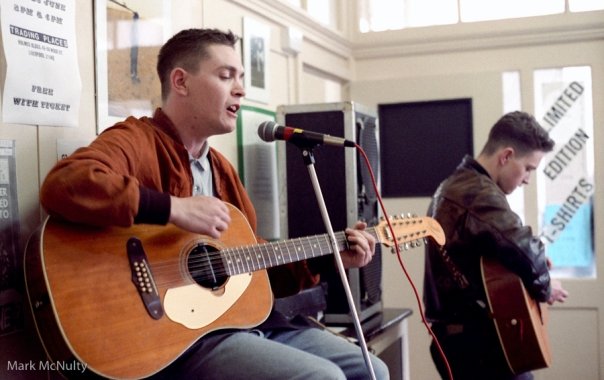
Quelle était l’ambiance dans le groupe après la sortie de Zilch ?
Andrew Erskine : Je ne sais pas. Zilch a été publié un an avant que je n’arrive au poste de manager. Quand j’ai débuté, l’ambiance était excellente. Il y avait un super line-up : Mick, John, Pete et Alan Wills. Et quelques chansons qui étaient le début de Waterpistol.
Pete Wilkinson m’a dit que le premier producteur de Waterpistol était Mike Hedges. Le groupe a commencé l’enregistrement dans son appartement. Pourquoi a-t-il quitté le navire ?
Andrew Erskine : Mike Hedges a travaillé un peu pour Shack car il était « reservé » pour produire le premier album des Beautiful South. Il a alors déménagé son studio de Willesden (Londres) en France. Il ne faut pas lui en vouloir.
Quels sont les autres producteurs qui ont travaillé sur Waterpistol avant Chris Allison ?
Andrew Erskine : Nous avons enregistré I Know You Well, Al’s Vacation, Irish avec Mike Hedges. Et peut-être Time Machine ? Nous sommes allés aux Out Of The Blue à Manchester et nous avons fait une version incroyable de Mood Of The Morning le premier jour de la Guerre du Golfe. Je ne sais plus qui la produit. Mick a ensuite démonté le studio et nous a demandé de partir.
Puis nous sommes allés aux studios Amazon à Kirkby près de Liverpool et nous avons enregistré une bonne partie de l’album avec Keith Hartley qui a produit plus tard les Teenage Fanclub. Les enregistrements ont été refusés par Ghetto (Dick Leahy) car ils n’étaient pas assez vivants. Il a demandé que nous recommencions tout. C’est à ce moment qu’Alan Wills nous a quittés pour TOP et que nous avons trouvé deux batteurs avant que Iain Templeton n’arrive.
Pourquoi Ghetto a choisi Allison ?
Andrew Erskine : Je ne sais pas. Peut-être à cause de son travail avec les Wedding Present sur l’album George Best ? Je n’ai pas fait partie des gens qu’ils l’ont choisi. C’était une personne qui pouvait bosser avec nous.
Tu étais le manager. Est-ce que la presse (N.M.E., Mojo, Melody Maker) s’intéressait à l’enregistrement du disque ?
Andrew Erskine : La presse anglaise ne s’intéressait pas à Shack à cette époque. Nous avions quelques soutiens mais c’était difficile d’avoir une couverture médiatique si ce n’est des articles qui concernaient nos concerts. Nous faisions pas mal de concerts à cette époque, cela permettait de consolider le groupe et de faire rentrer de l’argent à cette époque sauf quand il abusait des drogues et de l’alcool.
Pourrais-tu me décrire l’enregistrement de Waterpistol ?
Andrew Erskine : Ceci est une autre histoire et je pense que cela va être compliqué pour ton article.
Nous avons enregistré l’album aux Chapel Studios dans le Lincolnshire et nous avons fait les mixs au Air Studios à Londres. Nous nous sommes tellement amusés que j’ai du mal à m’en souvenir. Ne pense surtout pas que Mick était à totalement à l’ouest. Il était très créatif à l’époque. Il a composé Neighbours, Time Machine et London Town lors de l’enregistrement de l’album.
Te rappelles-tu le jour de l’incendie des studios ?
Andrew Erskine : Ce n’est pas moi, je peux le prouver. J’ai toujours pensé que c’était une histoire pourrie et que c’était probablement une fraude aux assurances. Je doute que les bandes aient disparu. J’ai toujours émis de grosses réserves quant à cette partie de l’histoire.
C’était facile d’être le manager de Shack ?
Andrew Erskine : C’est le meilleur travail que j’ai jamais eu. J’ai adoré être avec eux et participé à ce fantastique enregistrement. Ce fut mon premier job dans l’industrie musicale et cela m’a donné envie de fondé mon propre label et de baigner dans ce milieu jusqu’en 2003.
Quel est ton meilleur souvenir de l’enregistrement de Waterpistol ?
Andrew Erskine : Entendre l’enregistrement de London Town aux Chapel Studios par un beau jour d’été… Les portes du studio étaient ouvertes et tout allait pour le mieux.
Shack a donné des concerts après l’incendie des studios. Quelle était l’ambiance au sein du groupe ?
Andrew Erskine : Beaucoup de choses ont mal tourné au même moment. Il y a eu un cambriolage dans le local de répétition et quelques guitares ont disparu. Au même moment le label a perdu son contrat de distribution car Rough Trade avait des problèmes. Et puis Ghetto semblait se concentrait d’avantage sur les Lightning Seeds que sur Shack.
Quand as-tu croisé Mick pour la dernière fois ?
Andrew Erskine : Il y a un an. J’ai vécu pas mal de temps à Los Angeles et je viens de revenir à Liverpool. Je crois que nos relations sont toujours bonnes. Je vais toujours le voir jouer en concert où que ce soit et je suis très excité d’entendre son nouvel album. J’aimerais aussi que Zilch et Waterpistol soient réédités. Mais je suspecte Mick et John de ne pas aller dans ce sens. Mais ces disques méritent vraiment une reconnaissance.
Quelle est ta chanson préférée de Waterpistol ?
Andrew Erskine : J’aime Undecided, Mood Of The Morning, London Town, Walter’s song et Stranger. Mais le disque entier est un chef d’œuvre. Je suis fier d’avoir managé le groupe qui a enregistré ça.
Lance Phillips
Lance Phillips est l’ingénieur du son qui a mixé Waterpistol
Tu connaissais, tu appréciais la musique de Mick Head avant Waterpistol ?
Lance Phillips : Oui mais vaguement. J’avais fais quelques sessions auparavant avec Ian Broudie pour From Across The Kitchen Table des Pale Fountains. Mais je n’avais pas rencontré le groupe. Il s’agissait juste de sessions de mix et le groupe n’était pas présent. Je ne savais donc pas que c’était le premier groupe de Mick. Et, à ma grande honte, je ne m’en suis rendu compte qu’une fois que je mixais le disque avec Chris Allison.
As-tu participé à l’enregistrement ?
Lance Phillips : Je n’ai pas participé aux enregistrements directement. Tout cela s’est fait aux Chapel Studios dan le Lincolnshire. I y a eu quelques ajouts aux Star Studios (qui devait appartenir au label).
Une fois que les morceaux ont été enregistrés, Chris les a amenés aux studios Air (où je travaillais à temps complet comme ingénieur). Nous avons travaillé sur le mix final du disque. De l’enregistrement, j’ai bien peur de ne pouvoir rien te dire si ce n’est ce que Chris m’en avait dit. Visiblement, les choses avaient été compliquées.
Te rappelles-tu de ta première rencontre avec Shack ?
Lance Phillips : Oui. Tu dois te souvenir que je ne savais rien d’eux avant le premier jour du mixage. D’habitude, je demande des mix bruts de la session finale afin de découvrir le son et de me faire une idée de ce à quoi on pourrait aboutir, mais pour je ne sais quelle raison, cette fois, ça ne s’est pas passé comme ça. Donc là, je me suis retrouvé à démarrer les machines, placer les pistes, appuyer sur play et découvrir ce qu’on avait. Et c’était tellement mieux de travailler comme ça, parce que ce que j’ai entendu pour la première fois était franchement une révélation. On savait déjà que c’était très bon. Puis Mick et John sont arrivés. Je me souviens qu’ils étaient très calmes mais aussi très, très positifs par rapport aux sessions et la façon dont ça se passait. Je n’ai pas réalisé à quel point Mick était « malade », ce qui pouvait expliquer son calme. Mais c’est un type adorable (tous les deux d’ailleurs) et visiblement ravis d’être chez Air Studios. Et encore plus quand je leur ai présenté George Martin…
Quelle est chanson préférée de Waterpistol ?
Lance Phillips : Avec tous les mixs on a essayé d’obtenir un son jazz, psychédelique peut-être un peu brumeux, de manière à ce qu’on ne puisse pas tout entendre dès la première écoute mais qu’à chaque fois, on entende quelque chose de nouveau. On voulait que ça sonne organique, mais avec des côtés un peu déséquilibrés, une lead guitar un peu trop forte, ou en ajoutant de la reverb et du delay aux choeurs pour leur donner un côté éthéré. Tout ça pour s’éloigner de la production propre, nette, polie des années 80 et renforcer la singularité du disque.
L’album est génial et je repense avec affection à ces moments, mais c’était vraiment, vraiment beaucoup de boulot (pour plein de raisons) et cela nous a demandé beaucoup d’efforts. Je suis content que les morceaux sonnent naturels mais aussi de manière unique. C’était notre ambition. Je pense que mon morceau préféré est Mr Appointment, mais le mix dont je suis le plus fier est Time Machine celui-là s’est mis en place très vite. Il nous a pris un peu de temps, mais on a su dès le début que ça allait être un grand morceau.
Shack – Time Machine
Quel est ton meilleur souvenir lié à ce disque et son enregistrement ?
Lance Phillips : Mon meilleur souvenir est le plus évident : c’est quand nous avons ajouté les différents mixs et que nous avons créé les faces A et B dans l’ordre. En d’autres termes, nous avons compilé le disque. J’étais avec Chris et nous mis les bandes dans le lecteur, baissé la lumière et nous avons joué l’album du début à la fin. C’était la première fois que j’écoutais le disque comme un tout cohérent. Et c’était magnifique. Je me rappelle me dire que c’était le meilleur disque sur lequel j’avais travaillé. Les meilleurs chansons, le meilleur jeu (la batterie et la basse sont superbes) et le meilleur son.
Comment as-tu trouvé le son de Waterpistol ? Le son de ce disque est très particulier et magnifique ?
Lance Phillips : Il s’agit d’une question du mixage des chansons et de comment Chris a enregistré. Il n’a pas imposé le même son à toutes les chansons. Nous avons examiné toutes les parties de guitare pour les fondre en une seule ou nous voulions dépouiller certaines parties pour être encombrés. Chris a capturé de nombreuses idées sur la cassette. Nous avons donc du choisir ce que nous gardions et ce que nous abandonnions. Mais comme je te l’ai dit, nous aimions que quelque chose soit caché, quelque chose de trop fort, ou juste de faux par rapport à la journée. Donc on programmait la Bvox avec de la reverb et du delay, et au final on ne récupérait jamais le son d’origine. Ca a donné un son suranné, mais aussi un côté un peu éthéré. Et ensuite on ajoutait de la distorsion ou on compressait. Les guitares acoustiques était passées directement au compresseur Fairchild pour leur donner un véritable éclat ; les cordes étaient passées à l’Eventide pour créer un effet glissando. Les batteries étaient généralement à peine augmentées pour contrôler la reverb ; si tu préfères, on les gardait plutôt droites et « pures », sauf sur Sergeant Major où on a vraiment exagéré la fin des couplets pour que les pauses sonnent vraiment fort.
Pour la basse, on a fait un assemblage avec un DI et un Amp sound, avec généralement une touche de UREI pour limiter, mais parfois aussi des refrains avec le SPX90 et un peu de reverb sur les chansons plus calmes, jazzy pour donner l’impression d’une toute petite pièce.
Mais on a aussi eu de vrais problèmes. Je crois que que Chris a vraiment fait un super travail de production. Généralement, c’était merveilleusement bien joué, et on percevait la qualité du groupe sur chaque morceau, mais d’après ce qu’il m’a dit, ça n’a pas été si simple. Mick n’était pas au top de sa forme, et il avait parfois du mal à chanter juste. Evidemment, on n’avait pas d’autotune (d’ailleurs, je ne suis pas sûr qu’on l’aurait utilisé si on en avait eu un), donc on a laborieusement modifié certaines fausses notes. Même chose pour les guitares, qui n’était pas parfaites ici ou là, pas aussi précises qu’on aurait voulu. Certains mixs ont pris du temps, de longues heures de travail et beaucoup d’efforts.
Un des gros problèmes était le morceau Walter’s song.
Shack – Walter’s song
Mon souvenir (qui peut être un peu faussé, donc n’hésite pas à demander à Chris), c’est que cette chanson avait été commencée par un autre producteur. Alors, je ne sais pas trop comment ça se fait, mais quand on a posé la cassette et appuyé sur play, tout était nickel pendant environ 1 minute 30, puis, d’un seul coup, tout le morceau s’est mis à accélérer et ralentir. On a vérifié notre lecteur: tout allait bien. On ne comprenait pas, donc on a recommencé et rebelote. L’enregistrement était inexploitable, mais Chris n’avait pas le temps de le réenregistrer. Donc il nous a fallu le reconstruire, quasiment mesure par mesure. On n’avait pas à l’époque de ProTools ou Logic, donc on a dû faire comme ça.
On a fait amener une seconde console Studer 24 pistes et on a recopié le plus possible de la chanson originale d’une machine sur l’autre. Quand elle a commencé à accélérer, on a arrêté. On s’est donc retrouvé avec, on va dire, une minute de chanson utilisable sur la machine n°2, et il fallait aller récupérer un bout de refrain ou de couplet qui était correct sur la machine n°1, par exemple le 3ème couplet, et le remettre sur la machine 2, en tant que, par exemple, deuxième couplet. On a fait la même chose pour tous les refrains et les ponts, retrouver les mesures et groupes de mesures qui étaient bien, les envoyer sur l’autre machine, aller vérifier, puis reconstruire le morceau en mettant tout bout à bout. On a fait ça pour la batterie, puis la basse, puis toutes les guitares, puis les voix et enfin les arrangements des cordes. Morceau par morceau, phrase par phrase, ligne par ligne. Parfois, on devait enregistrer des parties individuelles et les réintroduire (un peu comme un sample primitif) à un autre endroit de la chanson où elles étaient répétées. On s’aidait des fonctions sample de l’AMS et de l’Eventide, but généralement il s’agissait de repérer, appuyer sur play sur une machine, record sur l’autre, aux moments où on pensait que ça allait marcher. Parfois, c’était bon, parfois non. C’était un processus long et frustrant, et ça nous a demandé beaucoup de patience. Mais Chris a eu complètement raison, parce qu’après quelques jours à faire ça, on a fini par obtenir un morceau entier parfait, sans accélération ou décélération, qu’on a pu ensuite mixer. Et c’est un de mes mixs préférés sur cet album, parce qu’on ne peut pas deviner qu’on était passés par tout ça…
Quelles méthodes et quelles techniques as-tu utilisées ?
Lance Phillips : Je suppose que maintenant, tu en as une idée. Mais je crois que ce qui a été le plus utile sur tout l’album, c’était les arrangements, et je ne peux en tirer aucune fierté, c’était grâce à Chris et au groupe. Bien sûr, pendant le mixage, on discutait avec Chris de ce qu’on pouvait retirer ou ajouter, déplacer ou échanger. Mais le gros du gros venait du travail de Mick, John et Chris et de leurs idées lors de l’enregistrement. On a veillé à bien placer tout correctement dans le Stereo Spectrum pour qu’on entende bien tout, puis on ajustait les niveaux de manière à ce qu’il faille vraiment bien écouter pour entendre certains éléments (comme les lignes de clavier sur Time Machine), comme les choeurs ou autres… Puis Chris ajoutait un hélicoptère ou deux…
Tu as travaillé avec le groupe ? Ils avaient des idées concernant le mix ?
Lance Phillips : Oui. Mick et John étaient très enthousiastes en ce qui concerne notre travail. Il s’agit des personnes avec qui j’ai eu le plus de facilité à travailler. Je serais intéressé de savoir ce qu’ils en pensent 20 ans après. Toute personne qui écoute les chansons que nous avons faites sait que nous avons vécu quelque chose de spécial. J’ai fait écouter ces morceaux aux autres ingénieurs, aux managers et à George Martin. Ils ont tous aimé. Tu dois avoir en tête quelle musique était à la mode à cette époque, et à quel point on sonnait démodés. Nous avions les La’s et les Stone Roses, mais à part ça, il y avait très peu de groupes en studio qui faisaient ce genre de disque. On était en amont de la période Britpop, avec laquelle tout tournait de nouveau autour des groupes. On comprend pourquoi Noel Gallagher était un grand fan. Nous étions en avance sur notre temps.
J’ai toujours pensé que ce disque deviendrait un classique. Je n’avais jamais pensé que cela prendrait cinq ans.
Maintenant tu connais bien l’histoire du mixages de ce disque. Mais il y a quelque chose que personne ne sait. Chris Allison ni Paul Kinder ni personne d’autre d’ailleurs ne le sait. J’avais gardé des bandes de sécurité avec tous les mixages. Et je les ai transférées sur cd. Je les écoute pour mon plaisir. C’était évidemment contre toutes les règles de déontologie de l’époque. Il y a deux ans, je les ai retrouvées car je déménageais. En rangeant mes affaires, je suis tombé sur une boite. Je les avais oubliées avec le temps. Personne ne sait qu’elles existent. Il y a quelques mixs alternatifs qui pourraient peut-être voir le jour. Ou pas. Il faudrait voir ça avec Chris.
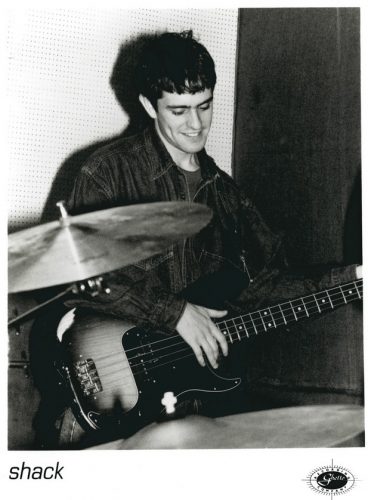
Jim McCulloch
Jim McCulloch a fait partie des The Soup Dragons. Shack a ouvert pour ce groupe le temps de cinq concerts en 1990.
Comment as-tu rencontré Shack ?
Jim McCulloch : J’étais un très grand fan des Pale Fountains avant de connaître Shack. Nous recherchions un groupe pour assurer quelques premières parties en Angleterre. Notre agent nous a proposé Shack. Je n’ai pas hésité et j’ai dit au groupe : « On va les prendre, vous ne serez pas déçus ! »
Qu’as-tu pensé des débuts de Shack ?
Jim McCulloch : Après High Rise Low Life, je les ai un peu perdus de vue. Et puis nous avons entendu leurs nouvelles chansons. C’était très impressionnant. Je me rappelle que les Teenage Fanclub enregistraient quelques chansons à Liverpool pour Bandwagonesque. Ils sont venus à la maison et nous ont dit que Michael Head enregistrait de la musique fantastique dans le studio voisin. C’était une période très excitante.
Quel est ton souvenir préféré de cette tournée ?
Jim McCulloch : Mon souvenir préféré est celui des balances. Je traînais toujours dans le coin pour écouter. Ils faisaient toujours des reprises de Love et c’était très spécial pour moi. Mon vieil ami Andrew était devenu leur manager et c’était un bon point pour eux.
Le pire ?
Jim McCulloch : Le pire souvenir ? Le public n’écoutait pas trop leur musique et ils n’avaient que 30 minutes par soir. Je me rappelle du concert d’Edinbourgh qui fut un concert fantastique pour les deux groupes.
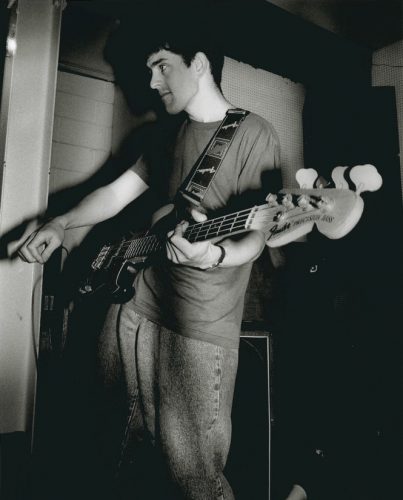
Paul Fitzgerald
Paul Fitzgerald est journaliste au GetintoThis et est un fan historique des Pale Fountains et de Shack.
Peux-tu me raconter l’époque de Waterpistol ?
Paul Fitzgerald : C’était une époque formidable pour le groupe. Nous attendions tous des nouvelles chansons. En fait, nous attendions la suite de Zilch qui était sorti quelque années plus tôt. La composition du groupe était excellente, plus forte qu’auparavant : Pete à la basse, Alan Wills à la batterie. Quant au jeu de John, il était devenu totalement incroyable. Ils étaient dans des mains sûres et étaient protégés de toutes les conneries du business musical londonien. Cependant l’ectasy est arrivée. Il y en avait partout. Cela a eu un impact sur Mick. Un jour Andrew m’a emmené les voir et écouter leurs nouvelles chansons. J’étais bluffé. Chaque nouvelle chanson était une grande chanson. Je me suis assis, totalement sonné. J’adorais tout : chaque note, chaque rythme… Mood of The Morning, Sgt Major, Stranger, Time machine, Neighbours. Tout était incroyable. Il s’agissait de chansons vivantes, importantes et urgentes. Je les ai adorées tout de suite. Il n’y avait pas une seule mauvaise chanson. Et tu dois avoir en tête que Pete, Alan et John étaient des musiciens incroyables. Ils jouaient ces chansons d’une telle manière… On attendait tous l’album. Et il n’est pas sorti alors que c’était le meilleur travail de Mick. Après, il a écrit le disque des Strands. Mais j’adore tout sur Waterpistol : les personnages, le côté vivant des chansons, les apports dance de Pete et d’Alan, le côté jazzy… Et en tant que grand fan des Paleys, j’étais au septième ciel quand il m’ont demandé que je leur prête mon disque préféré de Billie Holliday pour faire un échantillonage et enregistrer Time Machine. Cela me donne toujours le sourire.
Stefan Kassel
Stefan Kassel travaille pour le label Marina Records et est graphiste.
Comment le label Marina a rencontré Shack ?
Stefan Kassel : J’ai d’abord rencontré Mick après que Zilch ait été publié. C’était pour une interview pour un magazine. J’ai aussi rencontré Ian Broudie dans son studio (le producteur) et Dick Leahy, le boss de Ghetto Recordings dans les bureaux du label à Londres. Plus tard, j’ai revu Ian Broudie et son bassiste après un concert des Lightning Seeds à Hamburg. Ils m’ont parlé de ce projet avorté. Quand nous avons publié le disque, Shack était dissous. Mais Dick Leahy était plus qu’heureux de nous autoriser à publier le disque. Il a d’ailleurs été très content du résultat. Sans Marina, ce disque n’aurait jamais vu le jour. Nous étions très contents de faire ces efforts pour publier ce disque. Tu connais l’histoire… Il a été porté disparu pendant quelques temps.
Qui est l’auteur de cette pochette ? Toi ? Et ces photos ?
Stefan Kassel : Toutes les photographies ont été choisies car elles poursuivent l’histoire et les codes esthétiques établis par les Pale Fountains et Zilch. C’est pourquoi je les ai choisies. La pochette fonctionne bien avec le titre de l’album.
Avais-tu d’autres idées ?
Stefan Kassel : J’ai toujours eu cette direction. Il n’y avait pas d’autres choix pour la couverture.
Waterpistol de Shack est édité par Marina Records.
Les photographies de Shack ont été prises par Paul McCoy.
- Sgt Major
- Neighbours
- Stranger
- Dragonfly
- Mood Of The Morning
- Walter's Song
- Time Machine
- Mr. Appointment
- Undecided
- Hazy
- Hey Mama
- London Town
Michael Head publiera un nouvel album, Adiós Señor Pussycat début 2017.
Thx to shacknet.co.uk pour les visuels.
Thx to Bretelle & Buddy, Ben & Dick Leahy, Lance Phillip, Chris Allison, Stefan Kassel, Pete Wilkinson, Andrew Erskine & Paul Kinder, Paul Fitzgerald et Jim McCulloch & Sean Dickson.

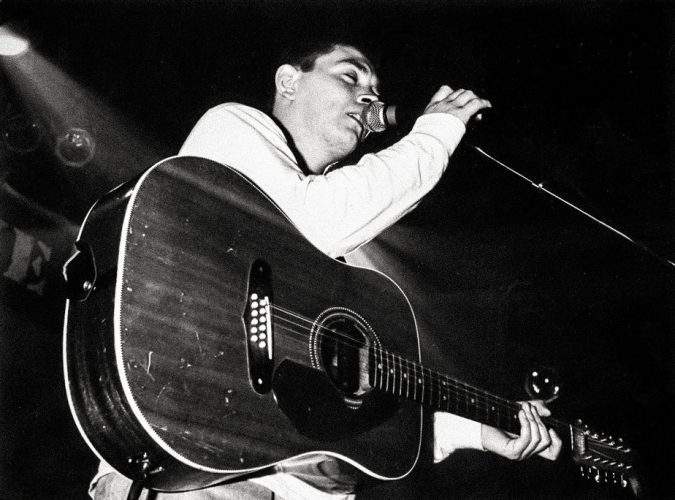
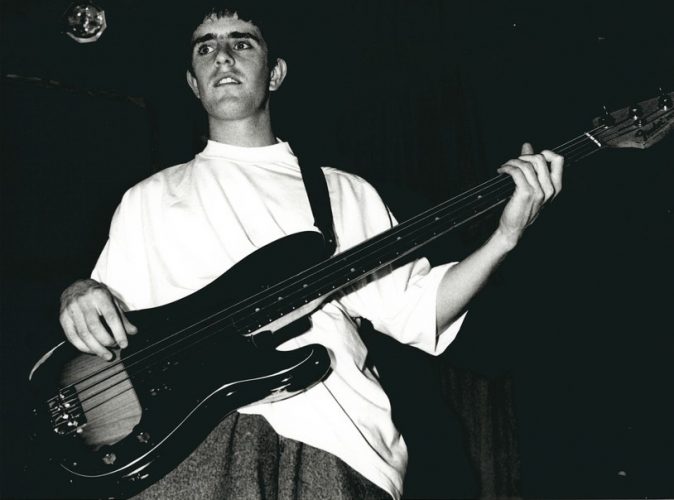
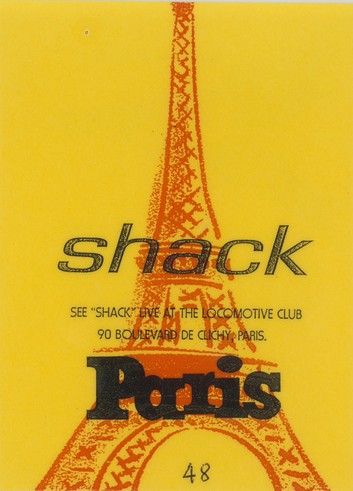
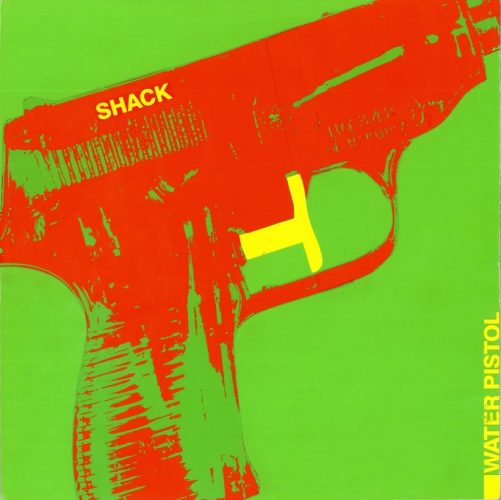
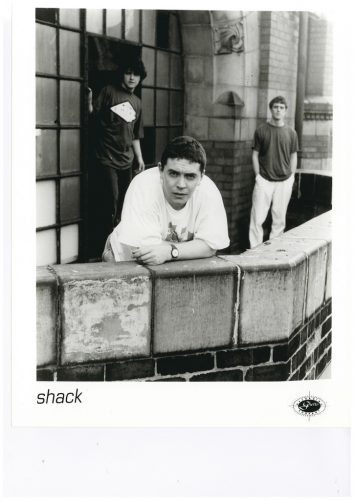
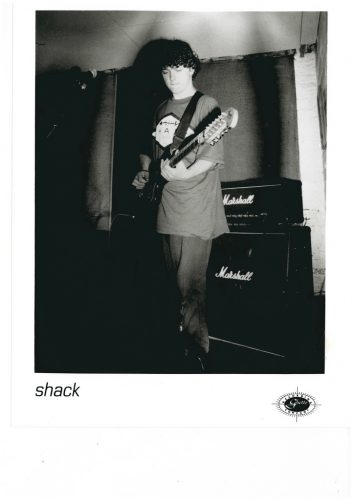
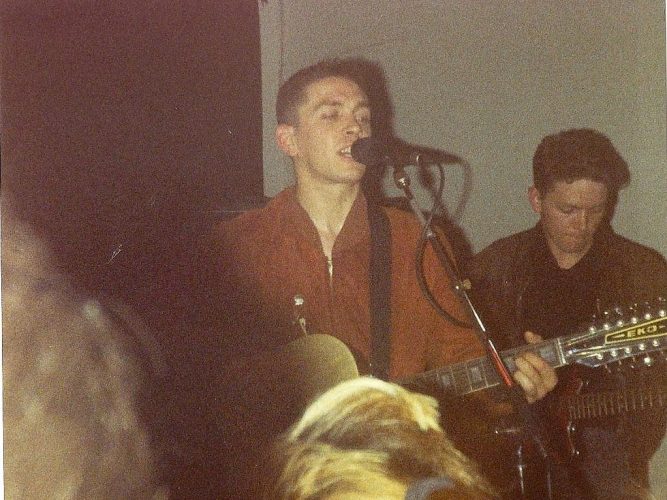
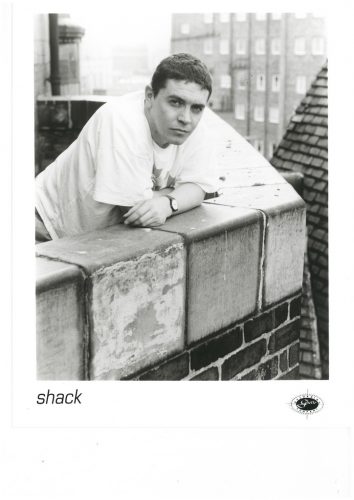
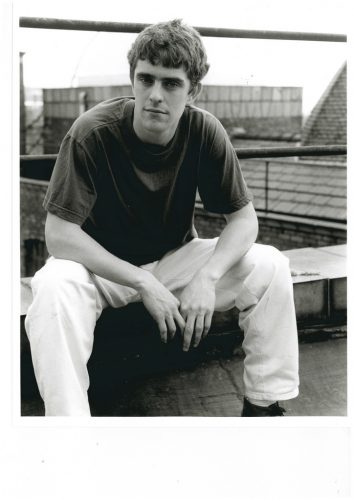
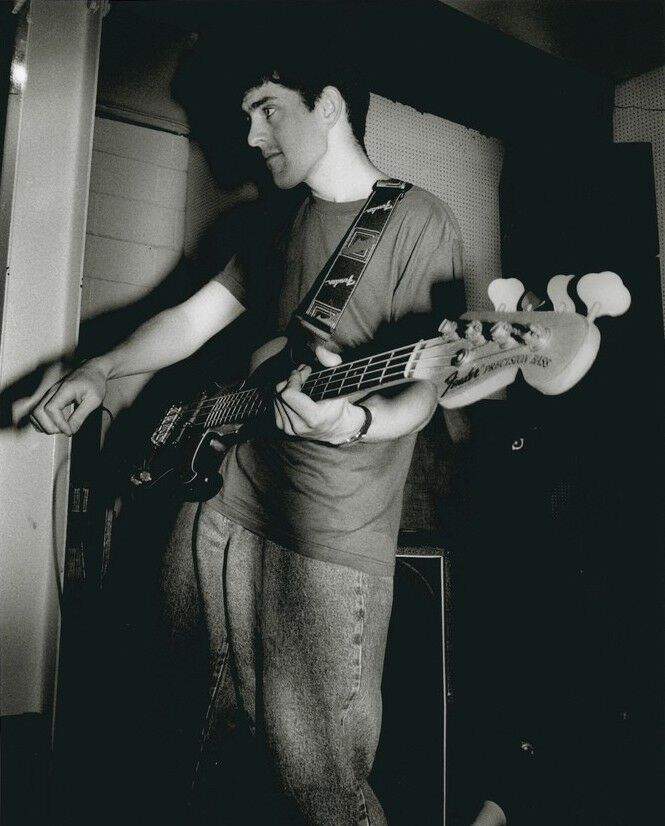
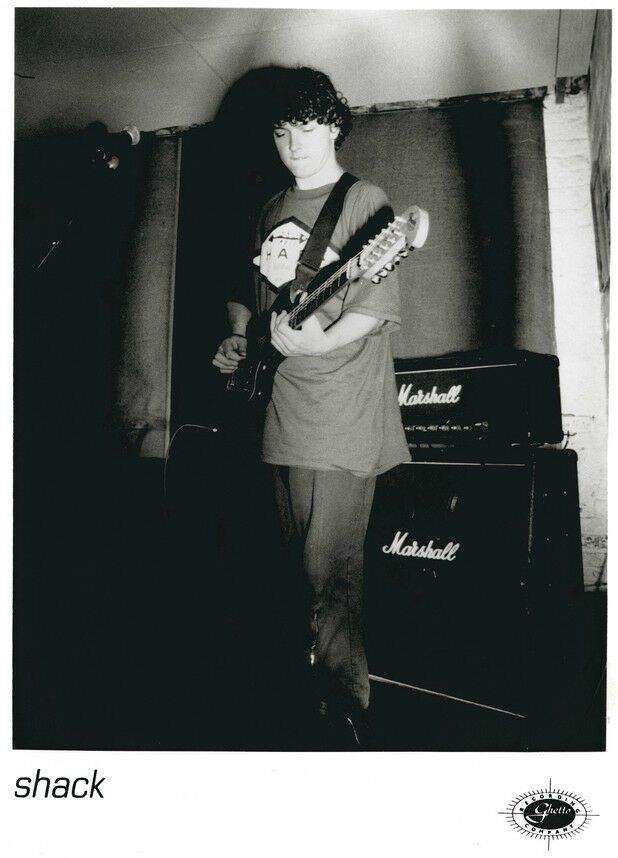
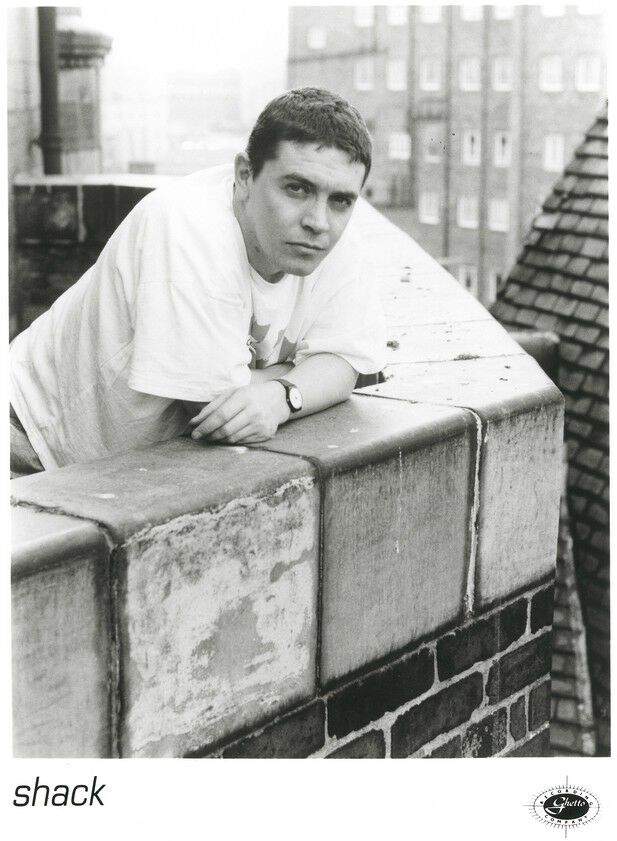
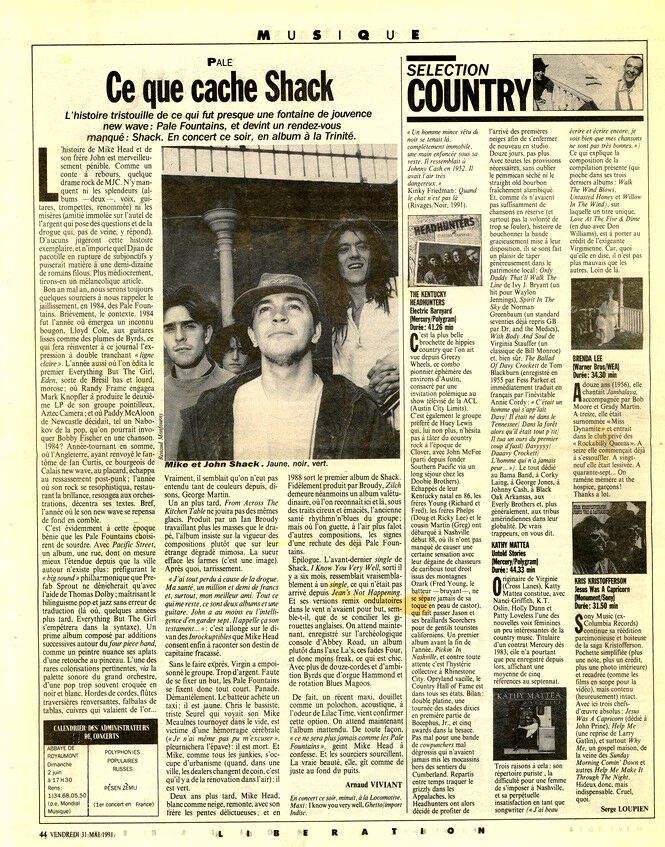
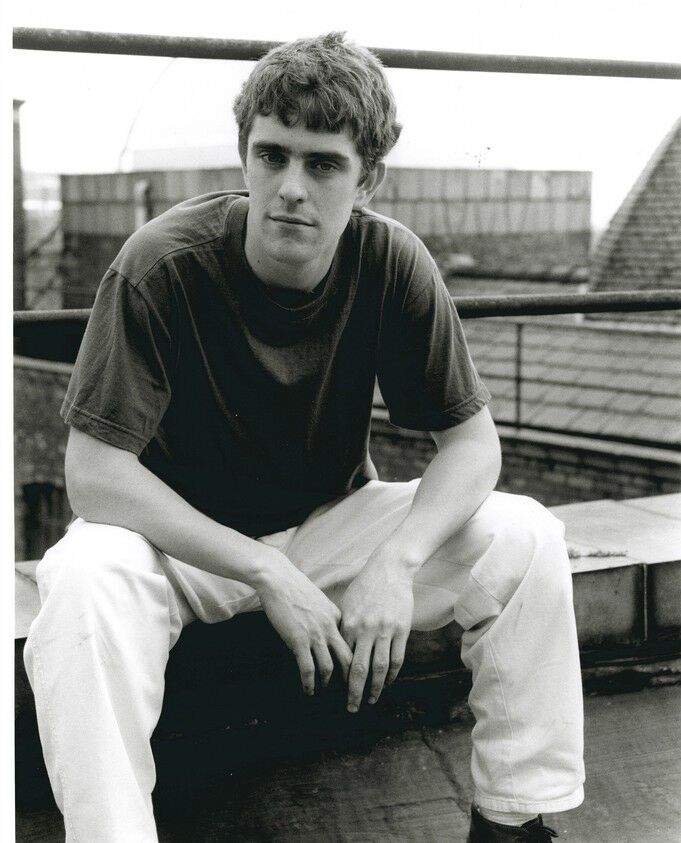
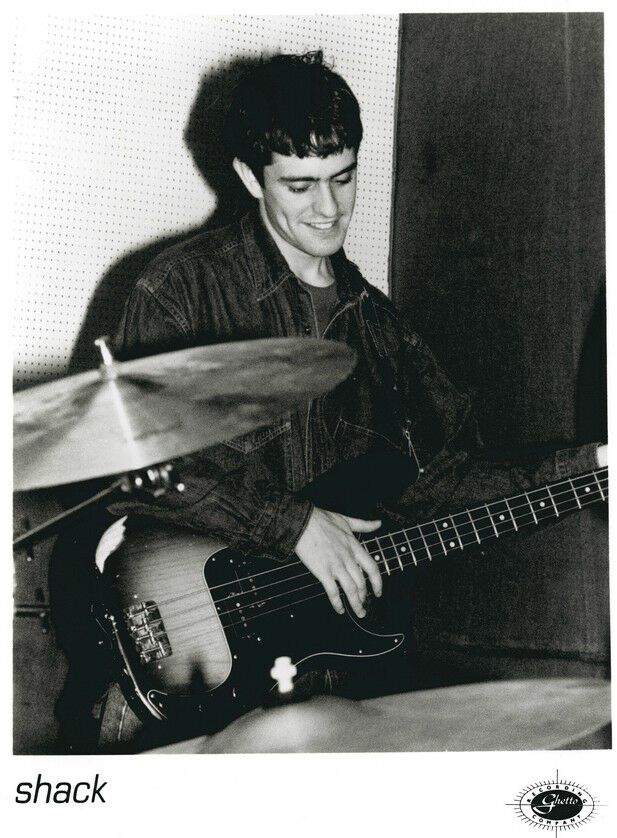
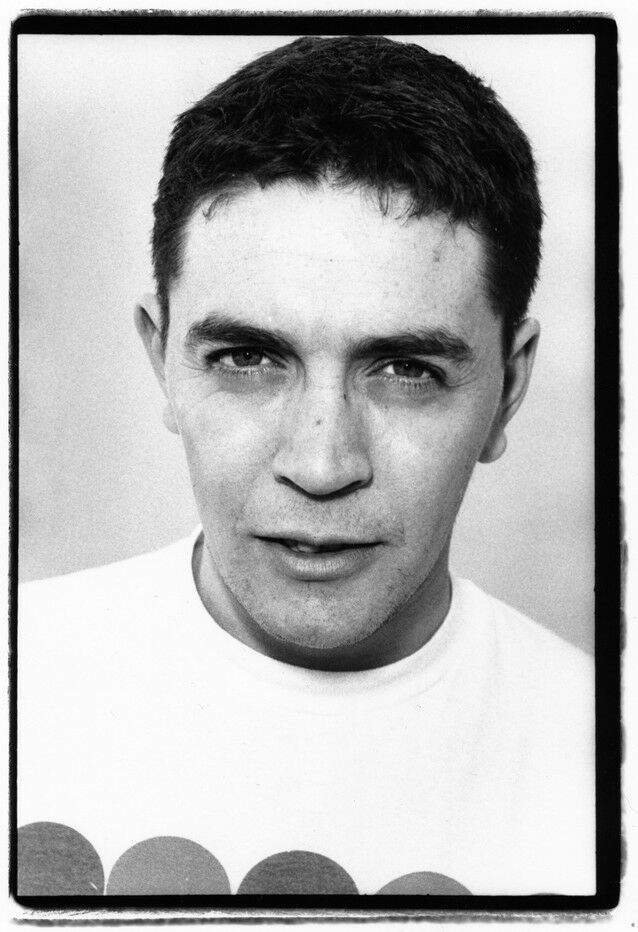
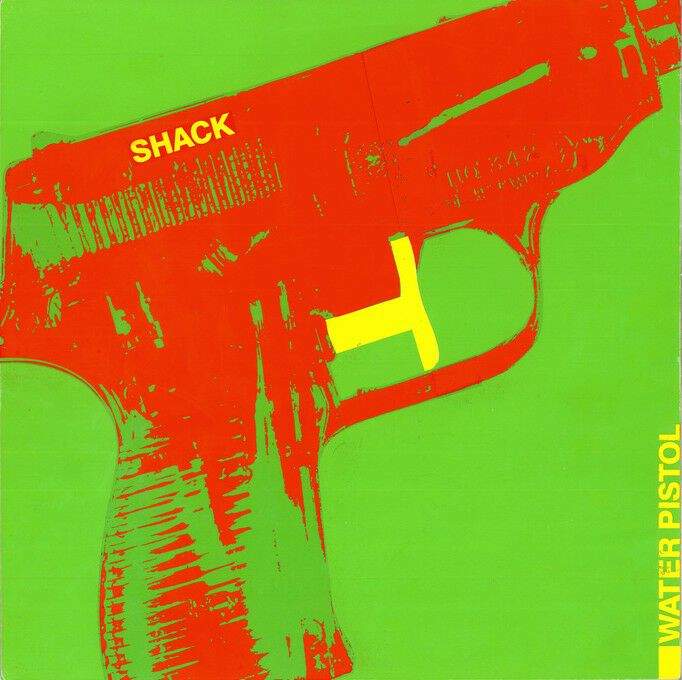
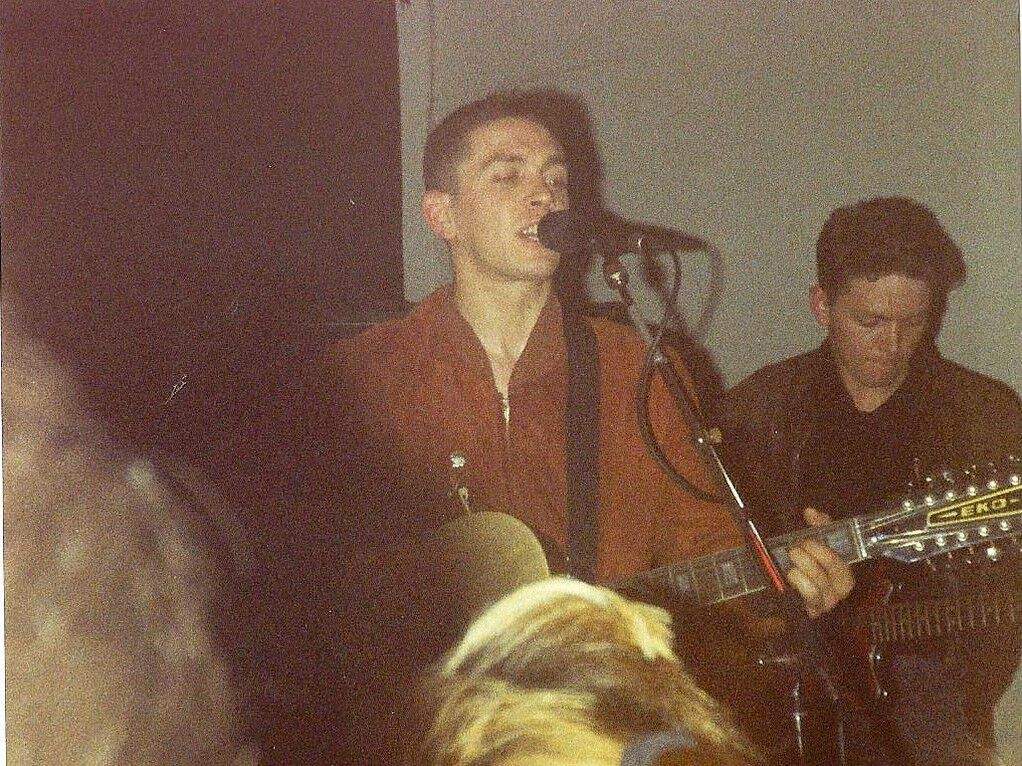
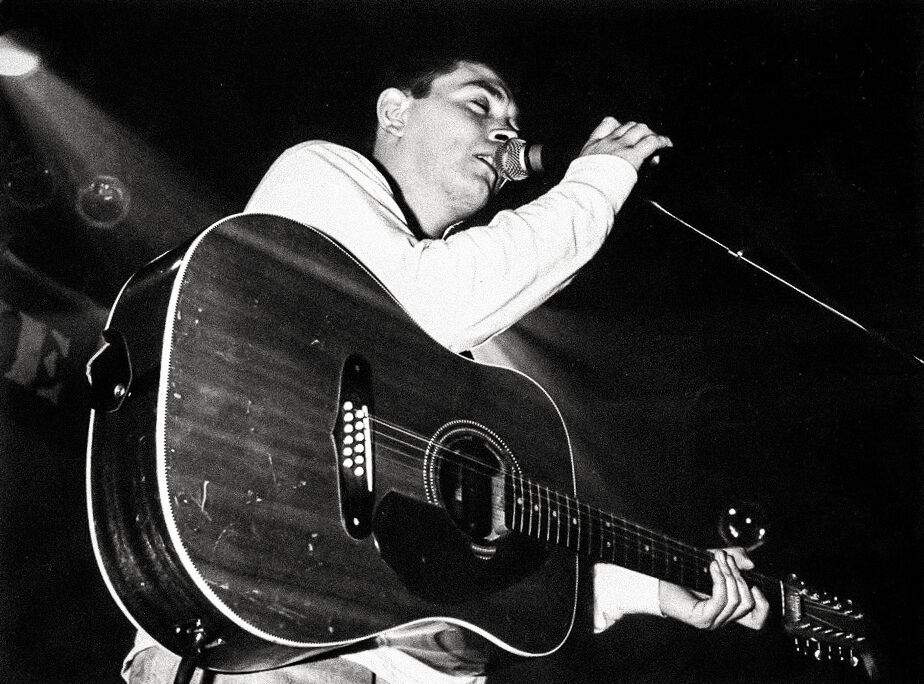
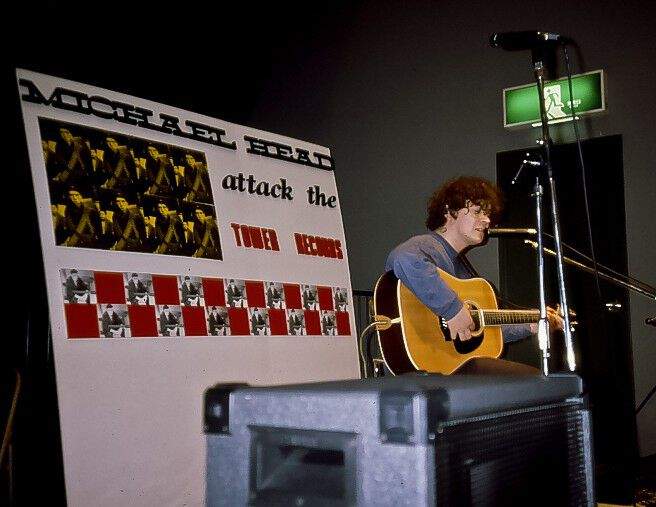
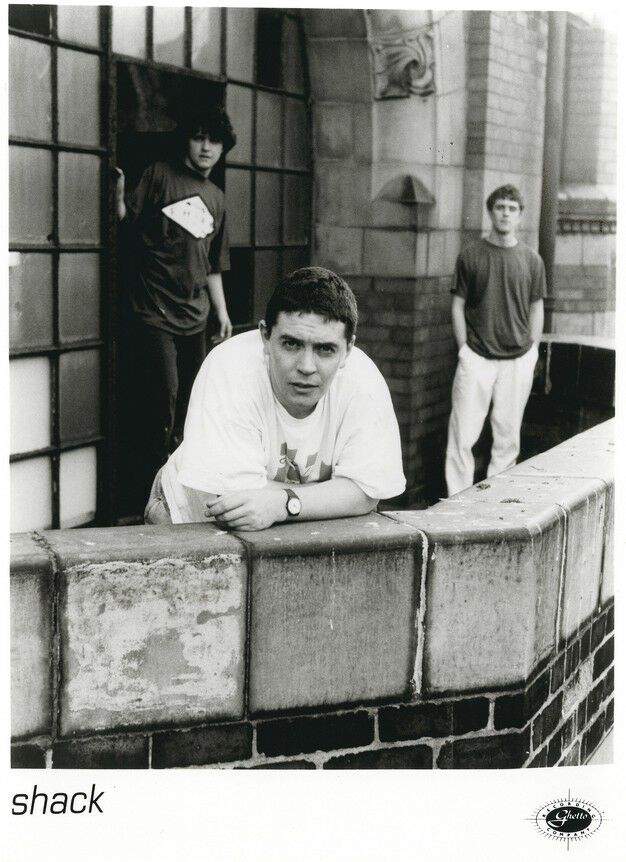
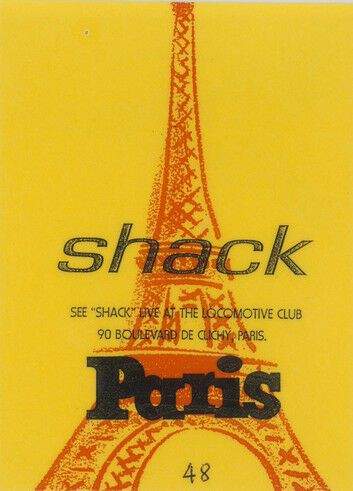
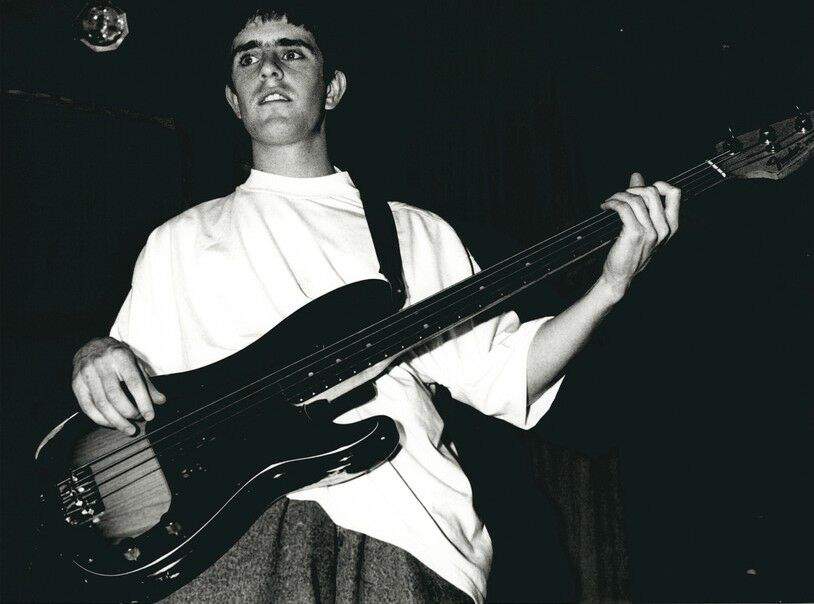
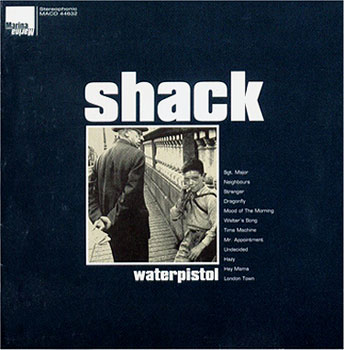
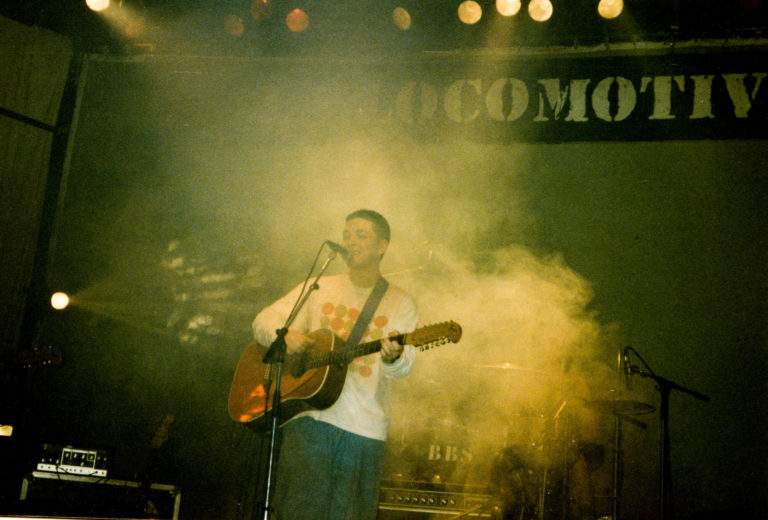
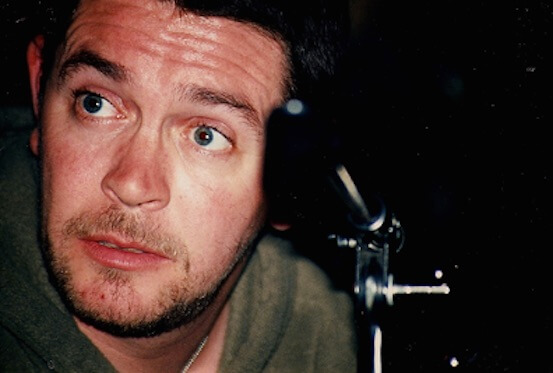
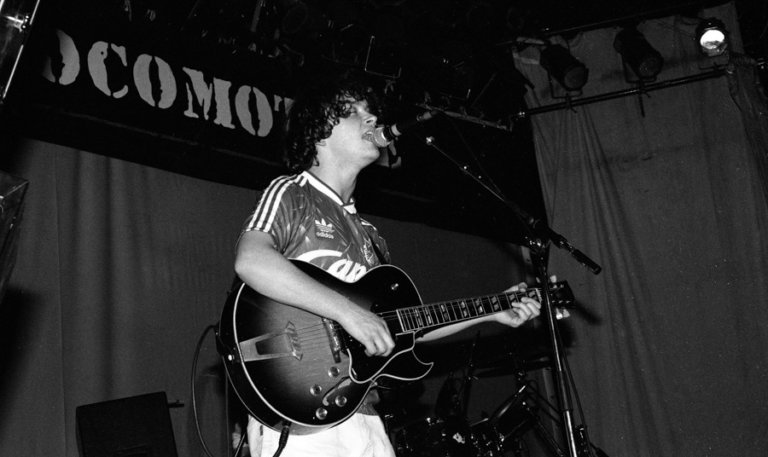
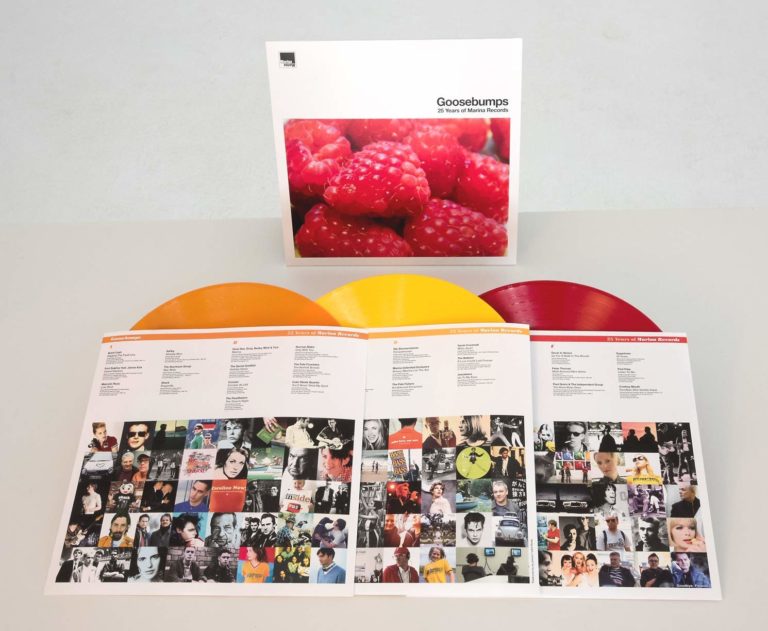
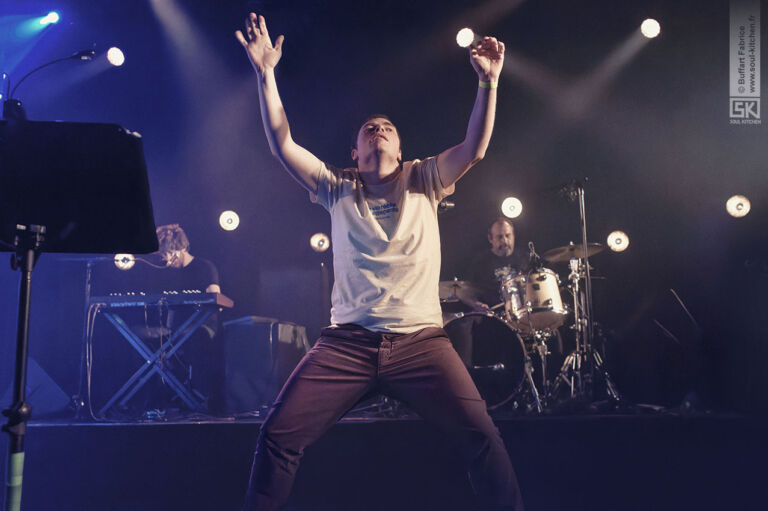
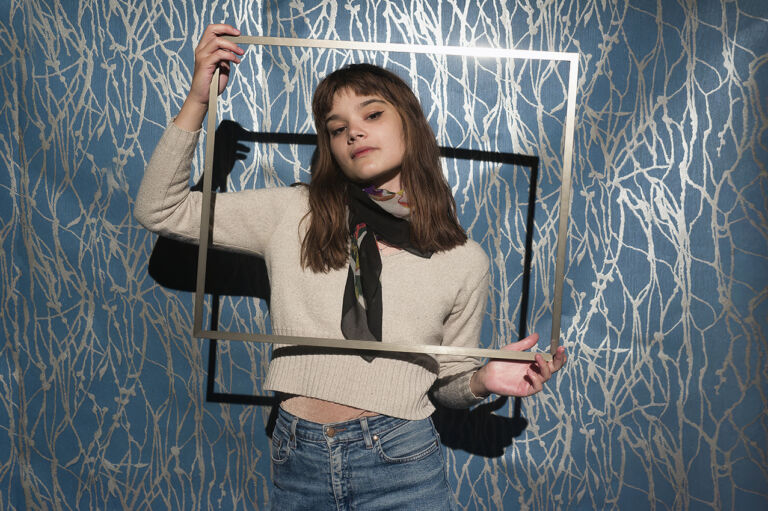
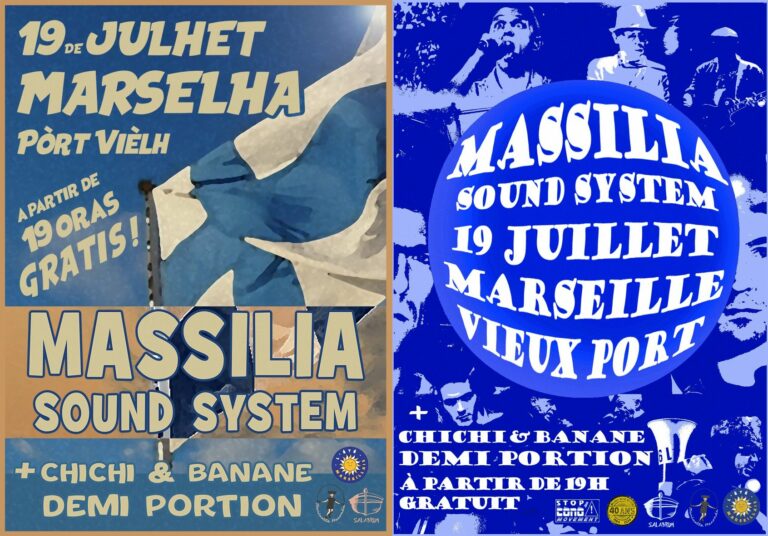
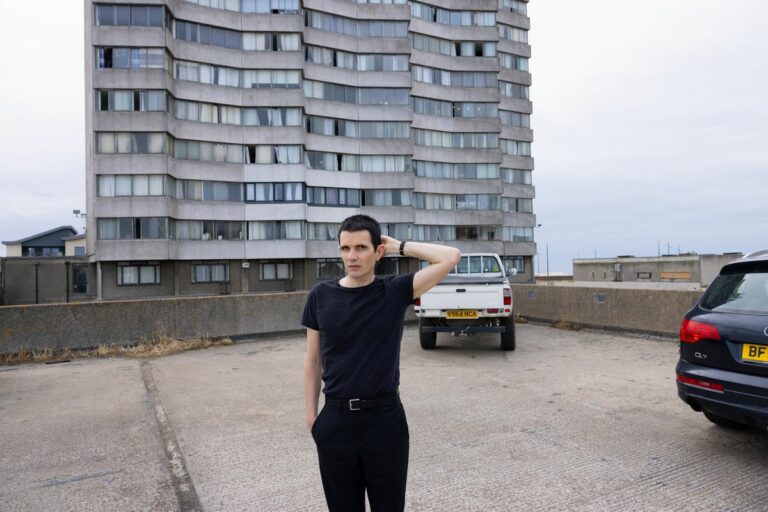
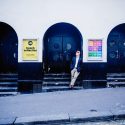 Le hip-hop selon Lambchop
Le hip-hop selon Lambchop Jacques a dit…
Jacques a dit…
Chris Allison
How did you meet the band ?
Chris Allison : Through the bands record label at the time (Ghetto Records).
How were held your days job ? Did you work the morning ? The night ? All the day ?
Chris Allison : We worked from 10am until late night. We recorded the album at Chapel Studios in Lincolnshire and mixed it at Air Studios in London.
You said :“Mick could never finish anything. I’ve never worked with anyone like him, and I hope I never do again. But he’s a songwriting genius and one of the most gifted artists I’ve ever worked with.” It was a very very difficult recording ? It took how many months ?
Chris Allison : We worked from 10am until late night. We recorded the album at Chapel Studios in Lincolnshire and mixed it at Air Studios in London.
The band had worked with a few other producers but the label were not happy with the results. I was asked to come in and make the project work. We hit it off right away – I had an immense respect and love for Mick and Johns songwriting – I was determined to make it work despite the difficulties. We worked on the recordings for around 6 weeks in all, including the mixing.
How did you find the sound of Waterpistol ? It was a « new sound’ in 1991 ?
Chris Allison : I am interested in experimenting and developing new sounds for artists that want to try something new, Shack were very much into the soundscape sound that was developed throughout the album.
What’s your favorite song of Waterpistol ?
Chris Allison : I have a number of favourite songs including ‘Sgt. Major,’ ‘Stranger’, ‘Time Machine’, ‘Mr Appointment’, ‘Undecided’ and ‘Hey Mama’.
Do you remember the day of the recording of Undecided ? It was the best song of Waterpistol for a lot of people….
Chris Allison : Yes, I do remember that song well. We recorded it from scratch – it came together fairly quickly. I like the choir like background vocals from John.
What’s your best memory of this recording ? The worst ?
Chris Allison : My strongest memory was recording ‘London Town’ on the morning we were leaving, it was recorded in one take – we had the doors of the studio open and you can hear a car going past on the actual recording. Hearing Mick sing the whole of ‘Stranger’ in one take was also a high point.
The most challenging part of recording the album was to get Mick to finish his vocals!
« Allison, meanwhile, had taken off to do my Jack Kerouac in the US and, knowing nothing of the fire, lost his producer’s copy DAT of Waterpistol in a hire car. Incredibly, when he returned and learnt of the fire, he tracked down the tape through US hire giant, Alamo. But still everything lay dormant, until German indie Marina rang Leahy’s office and said it wanted to release the album. (Music Week/1995) » This story is amazing. Legendary ! Do you remember the day of the discover of the tape in US ?
Chris Allison : Yes, I do remember speaking to Alamo rent a car about the DAT tape and miraculously a small, barely intact package arrived in the mail about six weeks later.
Waterpistol was published in 1995 by a german record. Not and english label ? Where are Rough Trade , EMi or Creation Records ? Shack did not interest any label ? It was incredible ? Waterpistol is a masterpiece….
Chris Allison : Yes, thank you Marina Records! Waterpistol wax published in 1995 on Marina Records. In 1995, The La’s are dead and Oasis was the Number one…
But the reviews are AMAZING. What was your reaction about this reviews ? And about the lack of success of Waterpistol ?
Chris Allison : Unfortunately, good reviews only count for a small number of sales. In 1995 it was radio play and touring that made an album successful from a sales point of view. There was not much radio play and not much touring from what I understand.
When have you seen Mick Head for the last time ?
Chris Allison : I last saw Mick when Shack were playing with Arthur Lee.
Do you listen to this album again ?
Chris Allison : I put the record on for the first time in quite a few years while answering your questions and it holds together well as an album – there is some lovely song writing and instrumentation on there.
Paul Kinder
When did you know Mick Head ?
Paul Kinder : When I started Ghetto Records in 1987.
What is your opinion about Zilch, the first album of Shack ?
Paul Kinder : An album full of brilliant songs about the world we lived in at the time. The problem with Zilch was the difficulty in finding a producer because Mick was very difficult to work with in the studio. We settled on Ian Broudie who did a good job but used electronic drums on most of the tracks which I think was damaging to the record.
I can read in Music Week (november 1995) : « He rates Waterpistol highly, but believes that three or four other important songs from the period should have been on the record. » What are this other important songs ?
Paul Kinder : DJ ACE, UP, I KNOW YOU WELL, AL.S VACATION.
Do you remember the period of Waterpistol recording ?
Paul Kinder : YES I WAS VERY HEAVILY INVOLVED. I FOUND SUGGESTED CHRIS ALLISON TO WORK WITH MICK.
What’s is your best memory of this period ?/p>
Paul Kinder : HEARIN GTHE FINISHED MIXES
Do you remember the last time you saw Mick Head ?
Paul Kinder : IN LIVERPOOL IN 1995.
What’s is your favorite song of Waterpistol ?
Paul Kinder : UNDECIDED.
How did the label and Leahy react after the fire of the studio ?
Paul Kinder : WE CLOSED THE LABEL.
Pete Wilkinson
If I’m not wrong, the first bassist of Shack is Mick Hurst. Do you know what he left the band ?
Pete Wilkinson : The 1st bass player with Shack was Justin Smith .. Mick Hurst was the drummer .. I think once Mick had decided to start demos for Waterpistol they asked Me&Alan Wills…
Unsure as to why Justin & Mick Hurst weren’t asked.
And you.. How did you meet Mick Head ?
Pete Wilkinson : I met Mick through Alan Wills . I’d befriended Alan during my college days .. Alan had a flat in Greenbank drive close to my college . All he had was a record player an two beanbags.. Pretty mental.
Do you remember your first day, your first rehearsal with Shack ?
Pete Wilkinson : 1st Shack rehearsals were in Alan Wills’ bedroom .. Disgusting but creative.. If I remember correctly this is were I Know you well was born… Me an Alan were jamming a grove similar to Tomorrow never knows and Mick loved it. Next day he had the song .
Do you remember the recording of Waterpistol ?
Pete Wilkinson : I remember most of recording Waterpistol . It started in Willsden , London at Mike Hedges studio . It was in his flat . He had a lot of old equipment from Abby rd which he salvaged from a skip outside Abby road. Mike quit making the album for reasons I’m unsure. Then there were demos in Star st . Ghetto recordings headquarters. And the a church somewhere. I’m sure Chris Alison remembers were that was
.
What was the mood in the band ?
Pete Wilkinson : The mood of the band was good, I think. I personally think the album was up there with The stone Roses an making the album I think we all thought it was special.
What’s your best memory about this recording ? The worst ?
: My favorite memory is being woken up with a line of Coke to record Stranger ..we did it in one take .. Fucking incredible band an telepathy .. Still there actually when we played last
My worst memory is realising the album would not get a release and feeling we where about to miss out on a huge time..
What’s your favorite song of this album ?
Pete Wilkinson : Ive two faves on Waterpistol . Both from the st street sessions
Stranger & Hey Mama .. Both played beautifully and with that Shack telepathy I’ve never felt in any other band.. Very special.
Do you remember the day of the burning of the studio ?
Pete Wilkinson : No I don’t remember the studio burning down .. Did it ??
After that, what did you do ? You left Shack and you went with John Power ?
Pete Wilkinson : The was Cast an we went on to have quite good success
Then I played with Echo & The Bunnymen for 5 years 2001-2006 . Then rejoined Shack. Now a rolling member of The Red Elastic Band and my own project AVIATOR …
Andrew Erskine
How did you meet Mick Head ? And Shack ?
Andrew Erskine : I was always a fan of The Pale Fountains since the very early days and myself and Paul Fitzgerald would travel across the country watching them regularly. Liverpool being kinda small made knowing people easy and Mick being so friendly meant we would speak to him often. Eventually (several years later) I owned a small shopping arcade and Mick’s partner Carleen would visit regularly , one day I asked her to help arrange a small performance with Mick and John at the establishment – this went very well and I was obviously in Micks thoughts when he needed a manager soon afterwards.
What was the mood in the band after the release of Zilch ?
Andrew Erskine : I don’t really know, Zilch was released at least 12 months before I became involved. The mood when I first began managing them was extremely positive, they had a great line up – Mick John Pete and Alan Wills and a great (small) set of songs that became the beginnings of waterpistol
Pete Wilkinson told me that the first producer of Waterpistol is Mike Hedges. The band began the recording in his flat. Why did Mike Hedges leave the process recording ?
Andrew Erskine : Mike Hedges had a very small time available for Shack because he was pencilled in to produce the first Beautiful South LP, he also was deconstructing his studio to move it to France in order to work there rather than in Willesden London. (don’t blame him for that ).
What are the other producers of Waterpistol before Chris Allison ?
Andrew Erskine : We recorded with Mike Hedges – I Know You Well, Al’s Vacation, Irish and (maybe) Time Machine? we went to Out Of The Blue in Manchester and made an incredble version of Mood Of The Morning the day the first Gulf War kicked off, not sure who prodiuced that though. Mick then smashed the studio up and we were asked to leave !
We went to Amazon studios in Kirkby near Liverpool and recorded almost the whole LP with Keith Hartley (IIRC)who later produced Teenage Fanclub, these recordings were dismissed by Ghetto – actually by Dick Leahy , as not vital enough and he wanted them all re-doing with a different set up . By this time we had lost Alan Wills to ‘TOP’ and had been through at least two other drummers before Iain Templeton was brought in
Why did Ghetto choose Allison ?
Andrew Erskine : I have no idea, perhaps because of The Wedding Present LP ‘George Best’ which was his best know work at that time ? I was not involved in his selection other than meeting him and him being a suitable person to work with.
You was the manager. The N.M.E, Mojo, Melody Maker… The english press was intererested by the process recording ?
Andrew Erskine : The English press were not interested in Shack during this time, we had some supporters in the press but due to the lack of releases it was difficult to get much coverage beyond live reviews, we did do a whole lot of live shows at this time as it both strengthened the band perfomance and brought some cash in. The band was very strong live at this time (except when too many drinks or drugs consumed).
Could you describe the process recording ?
Andrew Erskine : This is another story altogether and I don’t think there is enough paper in your magazine to get it all down easily. We recorded at Chapel Studios in Lincolnshire and mixed at Air Studios in London, we had so much fun doing this I can hardly remember much of it. Please don’t think that Mick was out of his mind the whole time because he wasn’t, he was in a very creative space and added some awesome songs to the LP during these later recording sessions to go along with the ‘older’ ones such as Neighbours, Time Machine , London Town.
Do you remember the day of the fire/the burning down of the Starr Street Studios ?
Andrew Erskine : It wasn’t me, can’t prove anything. Personally I always thought this was a bullshit story and probably an insurance fraud. I doubt the tapes were all lost in the fire and have always had serious reservations about this part of the story.
It was easy to be the Shack manager ?
Andrew Erskine : Best job I ever had, I loved being with them and making such a fantastic recording (eventually) It was mt first proper music Business role and It inspired me to start my own label and publishers and remain involved with music through to 2003.
What’s your best memory about the Waterpistol process recording ?
Andrew Erskine : Recording London Town in Chapel Studios on a hot summers day with the doors to the studio open and all being well with the world.
Shack did some concerts after the burning down of Starr Street Studios. Do you remember the mood in the band ?
Andrew Erskine : I know several things went wrong at the same time, there was also a burglary at the rehearsal rooms and some guitars went missing, the label lost its distribution when Rough Trade had problems and Ghetto seemed more focused on Lightning Seeds than Shack for a period.
When did you see Mick Head at the last time ?
Andrew Erskine : About a year or so ago – I have been living in LA for a while and am back in Liverpool now, no doubt I will see him soon. I believe all is good between us. I still go and see him whenever he plays and am super excited to hear the new LP when it finally lands. I also hope the re-release of Waterpistol and Zilch goes well although I suspect that Mick and John not being involved in that will mean it does not get the recognition it deserves yet again.
What’s your favorite song of Waterpistol ?
Andrew Erskine : I love Undecided, Mood Of The Morning, London Town, Walter’s song and Stranger – but the whole LP is a masterpiece and I am honoured to have managed the group whilst they recorded this.
Lance Phillips
Did you know/appreciate the music of Mick Head before Waterpistol ?
Lance Phillips : Yes but vaguely. Early on in my Air Studios career I’d done some sessions with Ian Broudie on a Pale Fountains album called “From Across The Kitchen Table”. But I didn’t meet the band (these were just mix sessions and the band weren’t there) so was unaware it was Mick’s earlier band. And in fact – to my everlasting shame – I still didn’t put two and two together even when we were mixing Waterpistol until Chris Allison pointed that TPF were the forerunners of Shack.
How easy was the recording process ? How long did it take you ?
Lance Phillips : Ah – so I better come clean here. I didn’t record the original tracks with Chris – he did these mainly at Chapel Studios in Lincolnshire with some bits and pieces at Star Studios (which I think was the band’s publisher’s studios). So when the tracks were laid down, Chris would bring them in to Air (at that time at 214 Oxford Street) where I was an in-house engineer, and he and I would then engineer the final mixes. So I’m afraid I’m unable to recount much of the recording except that from the stories Chris told me it was a bit of a bumpy ride at times. But I can tell you loads about the mixing, if that would be of any interest…
Do you remember your first time with Shack ?
Lance Phillips : Yes I do. You have to remember that I knew nothing about them on the first day of mixing. Usually when mixing I’d ask for some rough mixes ahead of the final sessions so I could hear the material and get a feel for how I thought it should end up sounding but for some reason that didn’t happen. So it really was a case of turning up on the day, put the multitrack on, press play and see what we had. And that was such a better way of doing it because what I heard for the first time was, frankly , a revelation. We knew it was good from the off. Then Mick and John arrived – I recall them both being really quiet but very, very positive about the sessions and the way they were going. I didn’t realise then how « ill » Mick was, which might have explained why he seemed to quiet – but he was a lovely guy (they both were) and seemed genuinely thrilled to be at Air. Particularly when I introduced them to George Martin…
What’s your favorite song of Waterpistol ?
Lance Phillips : With all the mixes we were trying to get a sound – jazzy, psychedelic, perhaps a little hazy, so that you didn’t necessarily hear everything first time but when you listened again and again, each time you would hear something you hadn’t heard before. We wanted it to sound organic, but with some bits and pieces deliberately out of balance – a lead guitar that was “over-loud”, or sinking the backing vocals into reverbs and delays to give them some ethereal qualities. To get away from the clean, separated, polished production of the 80s and to give the record a distinctive feel.
The album is wonderful and I look back upon mixing it fondly, but it was really, really hard work (for a number of reasons) and we put a lot of effort into. I’m proud that the tracks sound natural but also unique – that’s what we sought to do. I think my favourite track on the record is probably Mr Appointment but the mix I’m proudest of is Time Machine; that one just came together really quickly from the start – took a while to finish it but we knew immediately it was going to sound great.
What’s your best memory about this process recording ?
Lance Phillips : Well as I say I mixed the record, and if you’d like me to I can explain more about that…let me know if that would be of interest. So my best memory, I suppose, is the obvious one; when we’d done all the mixes we edited them together into a side 1 and side 2 running order – in other words, compiled the album. I remember Chris and I put that final comp onto the ½ inch tape machine, turned down the lights and played the album from start to finish. It was the first time I’d heard it as a coherent whole, a finished record. And it was wonderful. I distinctly remember thinking that this was pretty much the best album I’d worked on. Best songs, best playing (the drums and bass playing are superb) and the best sounding.
How did you find the sound of Waterpistol ? The sound of this Lp is very very amazing & singular ?
Lance Phillips : It was a question of mixing to the songs and the sounds Chris had recorded, rather than imposing a sound on all the songs universally. So we listened hard to all the guitar parts to make them all fit together; or we would just strip some parts away if they just cluttered things up. Chris had captured a lot of great ideas on the tape – so we then had to decide what stayed and what went. But as I say we liked the idea of somethings being hidden, or “too loud”, or just “wrong” by the conventional wisdom of the day. So we would feed bvox into delays and reverbs but just have the processed signal come back with none of the original source sound. This made them sound out of time but gave quite an ethereal quality to them. Then we’d distort that or over compress it.
Acoustic guitars were stuck straight through the Fairchild compressors to give them a real sheen; splings were fed into the Eventide to give a glissando feel. The drums were generally just fed to the plate to give a unified controlled reverb sound; we kept the drums pretty straightforward and « pure » if you like, except on Sergeant Major where we really over-loaded the bottom end of the toms to make those stops in the verses really ring out. The bass would have been a combination DI and Amp sound, generally just a touch of UREI limiting but occasionally some chorus from the SPX90 and a little reverb on the quieter, jazzy tracks to give the impression of a small room.
But we did have some real problems: I think Chris did such a superb job on producing the recordings. Generally, the playing was just phenomenally good and you had a real sense of a band performance on each one, but from what he has told me it can’t have been easy. I’m not sure Mick was in the best of health and some of his vocal tuning was a little off. We had no AutoTune of course (though I doubt we’d have used it even if we did) so we spent a long time painstakingly correcting some of the very bad notes. Ditto some of the guitars where the playing was a little less than perfect in a couple of places; not quite as precise as you might have liked. And not all the mixes came together quickly – it was hard work and long hours and a lot of effort.
One major problem was the track « Walter’s Song ». My recollection (which may well be flawed so please check this with Chris) was this was one track which had been started by another producer. Now I’m not sure how this happened, but when we put the tape on and pressed play all was well for about 1 minute and a half: then suddenly the whole track started speeding up and down alarmingly. We checked our tape machine – all was well. We couldn’t understand it so ran it again and the same thing happened. The recording was useless but Chris did not have the time to rerecord it. So we had to rebuild it, almost bar by bar. Now we had no ProTools or Logic to help us, so we did this.
We got a second 24 track Studer into the room – we copied as much of the original song as we could from one machine to the other. When the original track started speeding up, we stopped the dubbing.
So we had about, say, 1 minute of a usable track on machine #2. Then we’d go find a chorus or a verse from the original recording on machine #1 that was playing well (that could be for example verse 3) and drop that across onto machine #2 as, for example, verse 2. We did the same with all the choruses and middle 8 – finding those bars or groups of bars that played fine, dropping them across, going back, checking it, reconstructing the recording from those few bits or minutes of the original recording that played fine. We did that for the drums, then the bass, then all the guitars, then the vocals and finally the strings. Track by track, phrase by phrase, line by line. Sometimes we had to record individual sections on to the ½ machine and then fly them back in (a sort of primitive sampling) to a point later on in the song where they repeated. We were able to use the sampling functions on the AMS and Eventide to help but generally it was a question of counting stuff in, hitting play on one machine and record on the other at the points we thought would work. But you couldn’t tell until you played it back. Sometimes it worked. Sometimes it didn’t. It became a lengthy and frustrating process and I am sure our patience frayed quite a bit. But Chris was absolutely right to do it because after a couple of days of doing this, we finally had a finished, whole track in perfect time that did not speed up or slow down. Which we could then mix. And it’s one of my favourite mixes on the album; because if you didn’t know you could never tell…
What equipment did you use ? And what techniques ?
Lance Phillips : Well hopefully you’ve got some idea of that from the above. But I think the best mix technique on the whole album are the arrangements and I don’t think I can take any real credit for that – that was down to Chris and the band; sure, during the mixing Chris and I would discuss what we could lose, what we could add, what we could mute and so forth. But by and large a lot of it was Mick, John and Chris’ original ideas during the recording process. We worked very carefully on trying to place everything correctly within the stereo spectrum so you can hear it all; then we’d mess with the levels so sometimes you have to really listen hard to hear something (such as the keyboard lines on Time Machine), or a backing vocal, or whatever it may be.
And then Chris would add a helicopter or two…
Did you work with the band ? What are the feelings of Mick about the mix ?
Lance Phillips : Yes – both Mick and John were there and really enthused by what we were doing; they were the easiest guys to work with for me. And they seemed to love it; I’d be interested to know what they think of it now some 20 years later.
Everybody who heard the tracks while we were doing them thought we were onto something quite special – I’d play the tracks to the other engineers, managers, George Martin and they all loved it. You have to remember how out of fashion this kind of music was at the time. We’d had the La’s and the Stone Roses album was then or thereabouts but otherwise there were so few bands recording, so few records of this kind being made. We were ahead of the Britpop sound which suddenly became so band orientated again; you can understand why Noel Gallagher was such a fan.
I genuinely though this was an album that would be a classic. What I didn’t think was that it would take about 5 years for it to happen…
So on that – you’ll be familiar with the whole post-mix story of course. What you won’t know, nor will Chris or Paul Kinder or indeed anyone else is that, entirely unbeknownst to all of them, I had a set of safety DATS with all the mixes on as well. Not only that but I had transferred some of them onto a CD for my own listening pleasure. What had happened is that at the end of the session I ran off a couple of safety copies of the finished tracks; one for the label. And one for me. So I could use them as a sonic showreel for other gigs if you like. Technically, that was very much against the rules though everyone did it.
And when did I find this out? Two years ago – I moved house, found a box with a whole load of DAT tapes in it, started looking through them and lo, there they were, forgotten about after all this time. I’d completely forgotten I had them and of course there was no reason why Chris or anyone else would know I had them.
And there’s a couple of alternative mixes in there as well that never saw the light of day…which Chris may also have of course. Or perhaps not…
Dick Leahy
How did you meet Mick and John Head ?
Dick Leahy : I met Mick first as John wasn’t anything to do with them at that time. I saw a Pale Fountains gig in London around 1982 and thought they had a real style about them. I signed them to their publishing and then they later signed to Virgin for records.
The recordings of Shack with Keith Hartley were dismissed by Ghetto. Why ?
Dick Leahy : I don’t actually remember this but I imagine it would simply be that they weren’t good enough
Why did you choose Chris Allison ?
Dick Leahy : I think it was actually Paul Kinder who chose Chris
Why did you choose the Chapel Studios in Lincolnshire ?
Dick Leahy : That was Chris Allison’s idea as it was a residential studio and he thought he could lock the band up to get some work out of them. I’ve always been happy to let the producer pick the studio where they felt most comfortable
It was difficult to be Dick Leahy, the boss of Ghetto, the label of Shack ? Zilch had bad reviews by the English press…
Dick Leahy : Shack were difficult because of their lack of discipline. If they had had the work ethic and, really, the desire, they would have been unstoppable.
Zilch had mixed reviews I would say rather than bad…the expectations for Mick, especially amongst journalists, were always so high and it has always been a struggle to try and live up to them
The issue of Waterpistol was important for Ghetto ? Did you give a lot of money for the recording process ?
Dick Leahy : It wasn’t so much that it was an important album for Ghetto but it was a very important album for Shack. I felt they were in the position to make a great album and I thought ultimately Chris Allison did a very good job. It wasn’t a cheap album but I don’t think it was an exceptional amount of money that we spent.
What’s your favorite song of Waterpistol ?
Dick Leahy :There’s so many…I’ve always loved Undecided…Neighbours is a great song but Hazy probably just takes it as my favourite
Who is the photograher who took the picture of the booklet of Waterpistol ?
Dick Leahy : I’ve no idea but Erskine would probably know. I imagine whoever it was, it would have been Mick’s choice.
Jim McCulloch
How did you meet Shack ?
Jim McCulloch : I was aware of Shack from the beginning as I was a big Pale Fountains fan. We were looking for a support band for a few gigs around the UK and our agent came up with Shack as a suggestion..I didn’t hesitate and said to the rest of the band …this has GOT to happen..you won’t be disappointed !
How were your feelings about Shack ?
Jim McCulloch : After High Rise Low Life they fell off my radar for a bit…then we started hearing new material..and it was really impressive stuff. I seem to recall Teenage Fanclub had recorded some material for Bandwagonesque in Liverpool and they came home with stories of Michael Head in the adjoining studio making beautiful music…it was an exciting time.
What’s your best memory of this tour ?
Jim McCulloch : My favourite memory of this time are the soundchecks..I always hung around to listen and they would always play Love covers which was very special to me.
And the worth memory ?
Jim McCulloch : The worst memory…probably that the audience wouldn’t be listening to the music properly..plus they were only allowed to play for 30 minutes a night.
Do you remember what was the best show of The Soup Dragons ? And the best show of Shack ?
Jim McCulloch : My favourite memory of this time are the soundchecks..I always hung around to listen and they would always play Love covers which was very special to me.
Stefan Kassel
How did Marina Records meet Shack ?
Stefan Kassel : I initially met Michael in Liverpool after « Zilch » was issued interviewing him for a music magazine. I also met « Zilch » producer Ian Broudie in his studio on that trip, and Dick Leahy (the boss of Ghetto Recordings) in London at the Ghetto offices. Years later Ian Broudie and his bass player in The Lightning Seeds told us about the unissued album (after a Lightning Seeds concert in Hamburg). When we issued the album, Shack wasn’t active anymore. But Dick Leahy was more than happy to license the recordings to us — he was also very happy with the final result (the issued album).
Without Marina the album would never have seen the light of day. We are very happy that me made all the effort to finally issue those recordings (that also seemed lost for a while – you know the story).
Who is the author of the cover ? You ? Why did you choose this fantadtic picture ?
Stefan Kassel : All photos chosen seemed to continue the visual history and aesthetics established by The Pale Fountains and « Zilch » in my opinion. That’s why I chose them. The cover shot also seemed to work very well with the album title
Did you have another ideas ?
Stefan Kassel : It was always this direction. No other ideas were considered for the frontcover.
Paul Fitzgerald
Could you tell me your best memories about Shack in 1990/1991 ?
Paul Fitzgerald :
« I remember those days as a really positive time for Mick and the band. We’d all waited for new material, we’d been waiting since Zilch came out a couple of years earlier. The line up was stronger than ever, a real gang mentality, with Pete on bass and Alan Wills on drums, and John’s playing was just going from strength to incredible strength. My old mate Andrew was managing them, and to me, knowing how much respect he had for them, that was a massive plus point. They were in safe hands, and he was able to shield them from all the London music biz bullshit…well, in as much as anyone could! The times were changing, the whole rave thing was in its earliest flushes and there was Ecstasy. Really good Ecstasy everywhere. It all became a huge melting pot mentality for Mick, I think, soaking all this up. Andrew kept telling us about these new songs, teasing us….One afternoon he took me down to their room to hear the new stuff, it blew me away….bang, bang, bang….great song after great song after great song. I sat there getting stoned and loving every last note, every bit of it. Mood Of The Morning, Sgt Major, Stranger, Time machine, Neighbours….fuckin incredible stuff..and live, hearing those songs fresh, live was amazing. They sounded vital. Important. Urgent. I loved it. There wasn’t a bad moment, not a bad song. And you’ve gotta remember, John, Alan and Pete are incredible fuckin musicians so they were just buzzing off playing these new songs. I couldn’t wait for the album, though, as we know, I had to. We all did! When it did finally come out, I thought this was Mick’s greatest work. Then he wrote The Strands album! I love the stories, the characters on Waterpistol, the lives in those songs, the hints of that dance culture from Pete and Willsy, little jazzy hints, all that. And as a huge Paleys fan, I was over the moon when they asked to borrow one of my Billie Holiday albums to sample on Time Machine. Still makes me smile, that, every time. »